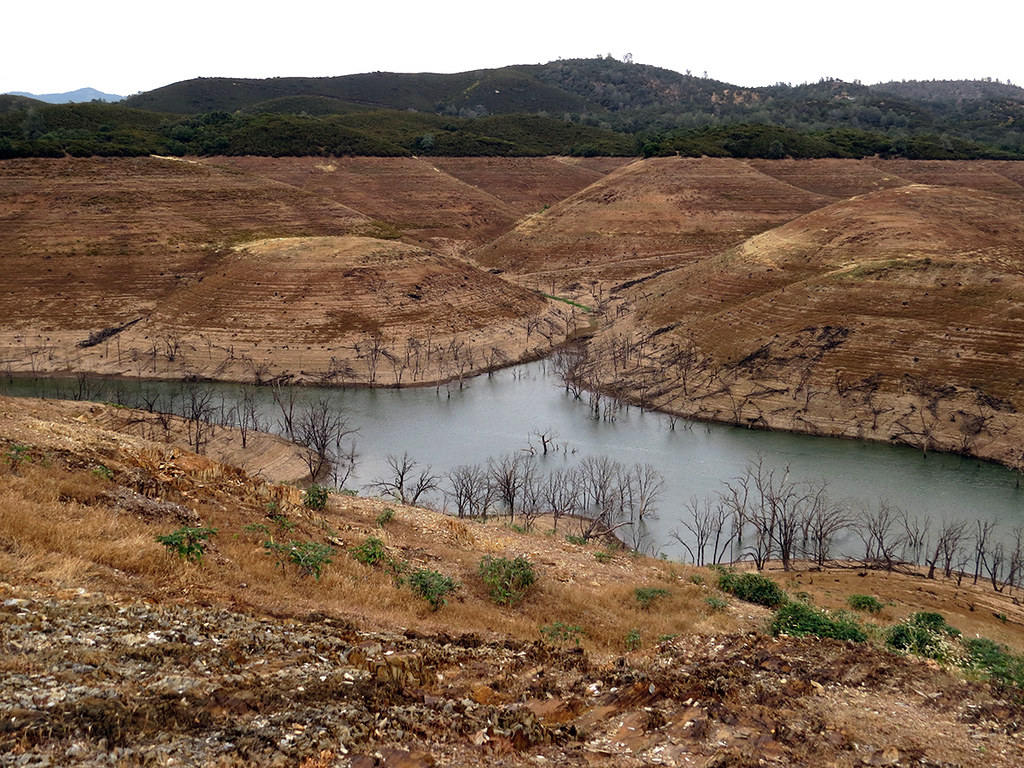
What remains of New Melones Lake. Tuttletown, California: photo by Ben Amstutz, 3 June 2015
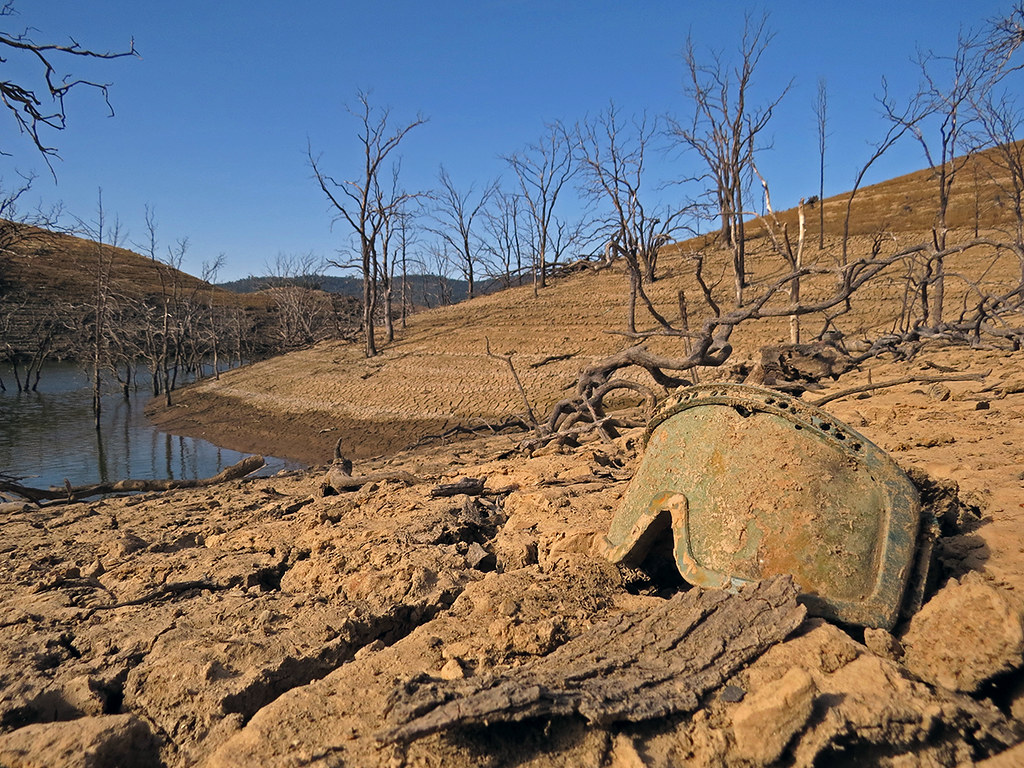
California Drought 2015. Way below Tuttletown Camground at New Melones, California: photo by Ben Amstutz, 4 June 2015
- Who is the third who walks always beside you?
- When I count, there are only you and I together
- But when I look ahead up the white road
- There is always another one walking beside you
- Gliding wrapt in a brown mantle, hooded
- I do not know whether a man or a woman
- -- But who is that on the other side of you?
- What is that sound high in the air
- Murmur of maternal lamentation
- Who are those hooded hordes swarming
- Over endless plains, stumbling in cracked earth
- Ringed by the flat horizon only...
T.S. Eliot: from The Waste Land, 1922

California Drought 2015. Way below Tuttletown Camground at New Melones, California: photo by Ben Amstutz, 4 June 2015
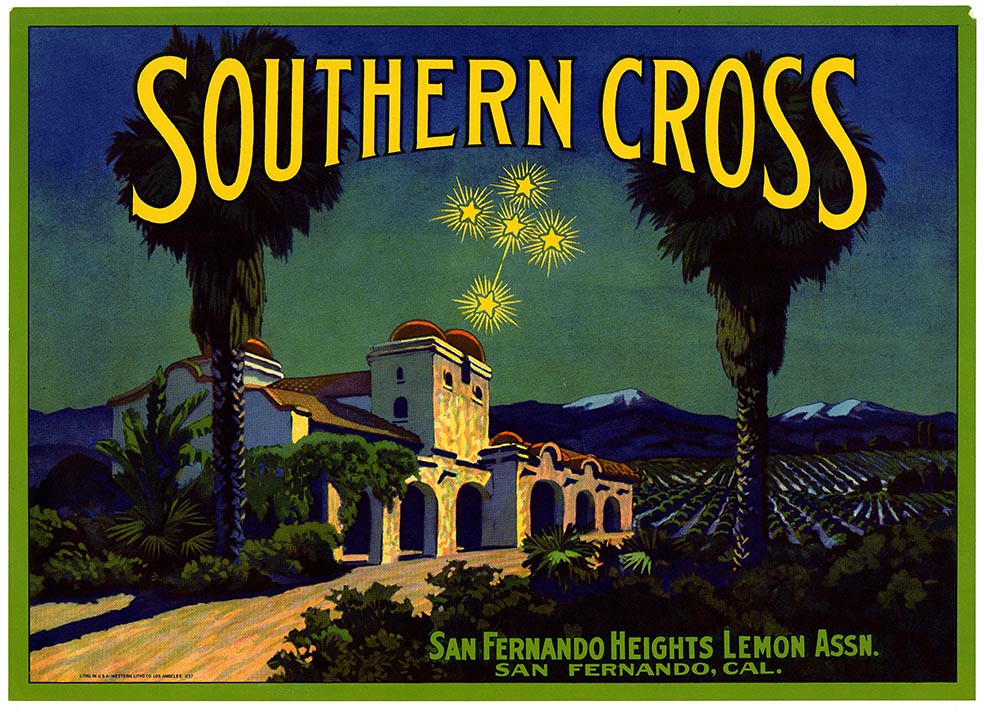
Lemon crate label, Southern Cross brand, Western Litho. Co.: n.d.; posted 6 March 2015 (Crate, can and bottle label collection, California HIstorical Society)
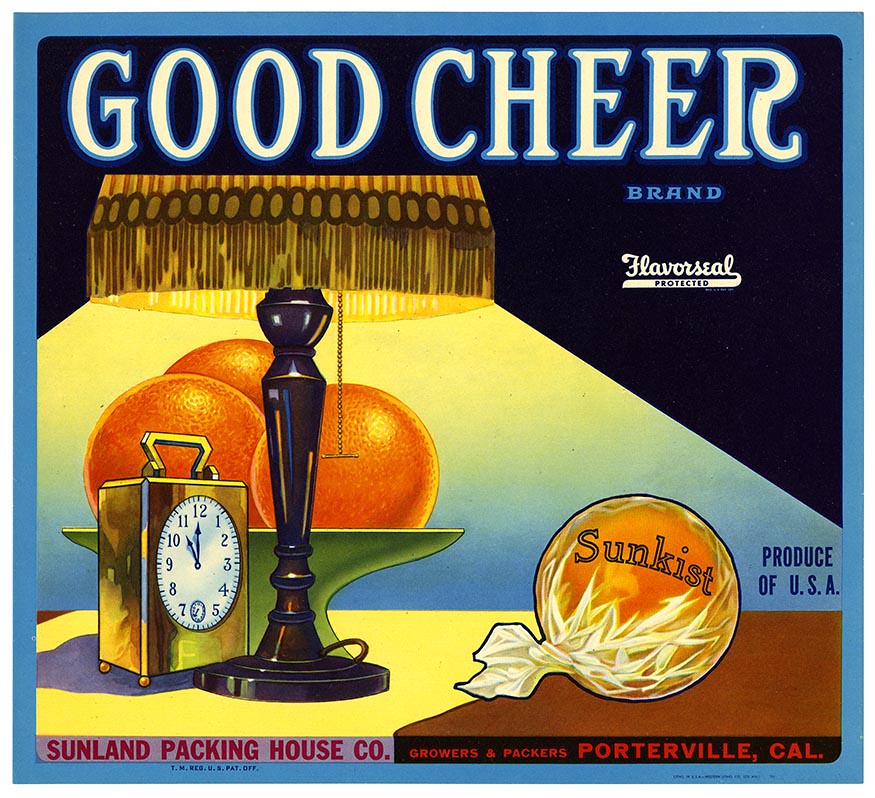
Orange crate label, Good Cheer Brand, Western Litho. Co.: n.d.; posted 6 March 2015 (Crate, can and bottle label collection, California HIstorical Society)

Orange crate label, Miracle Brand, Western Litho. Co.: n.d.; posted 6 March 2015 (Crate, can and bottle label collection, California HIstorical Society)
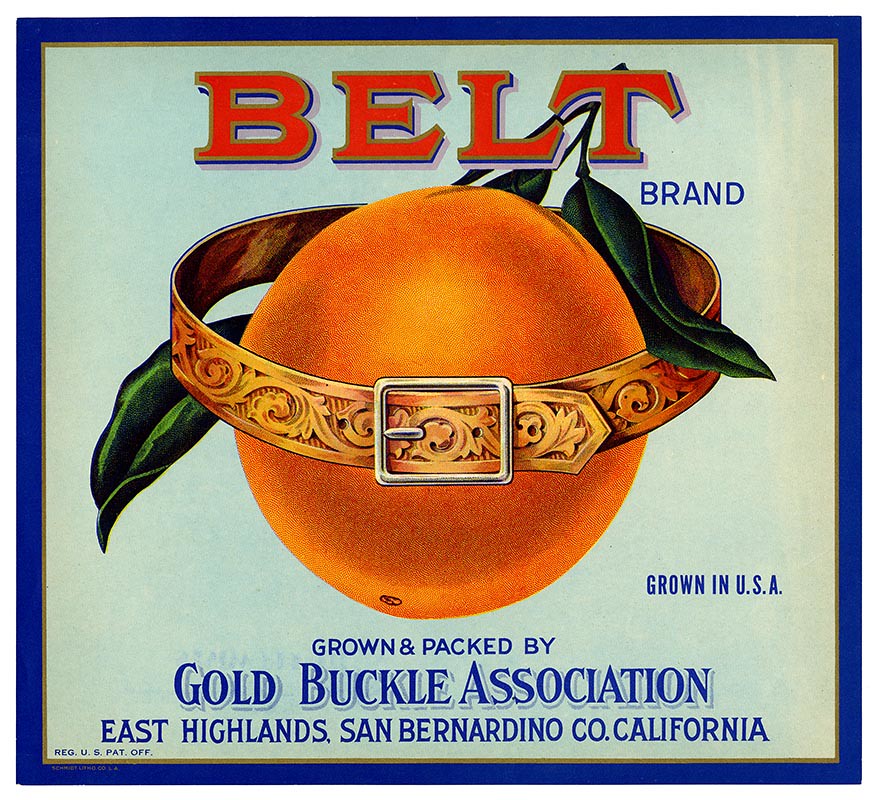
Orange crate label, Belt Brand, Schmidt Litho. Co.: n.d.; posted 6 March 2015 (Crate, can and bottle label collection, California HIstorical Society)
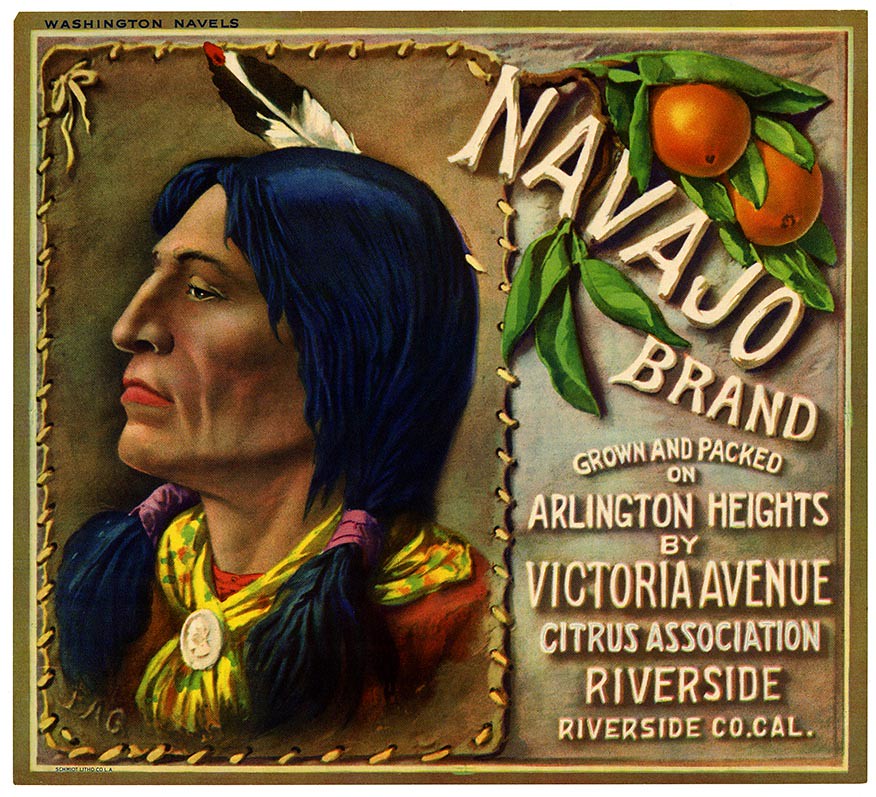
Orange crate label, Navajo Brand, Schmidt Litho. Co.: n.d.; posted 6 March 2015 (Crate, can and bottle label collection, California HIstorical Society)
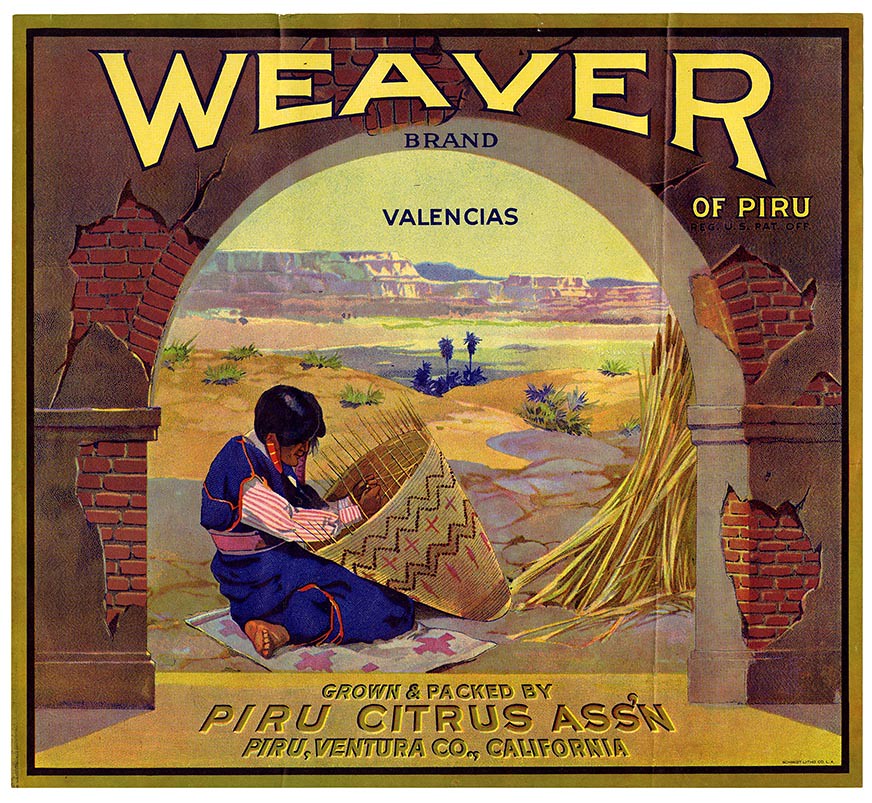
Valencias crate label, Weaver brand of Piru, Schmidt Litho. Co.: n.d.; posted 6 March 2015 (Crate, can and bottle label collection, California HIstorical Society)

California oranges crate label, Yokohl Brand, Schmidt Litho. Co.: n.d.; posted 6 March 2015 (Crate, can and bottle label collection, California HIstorical Society)
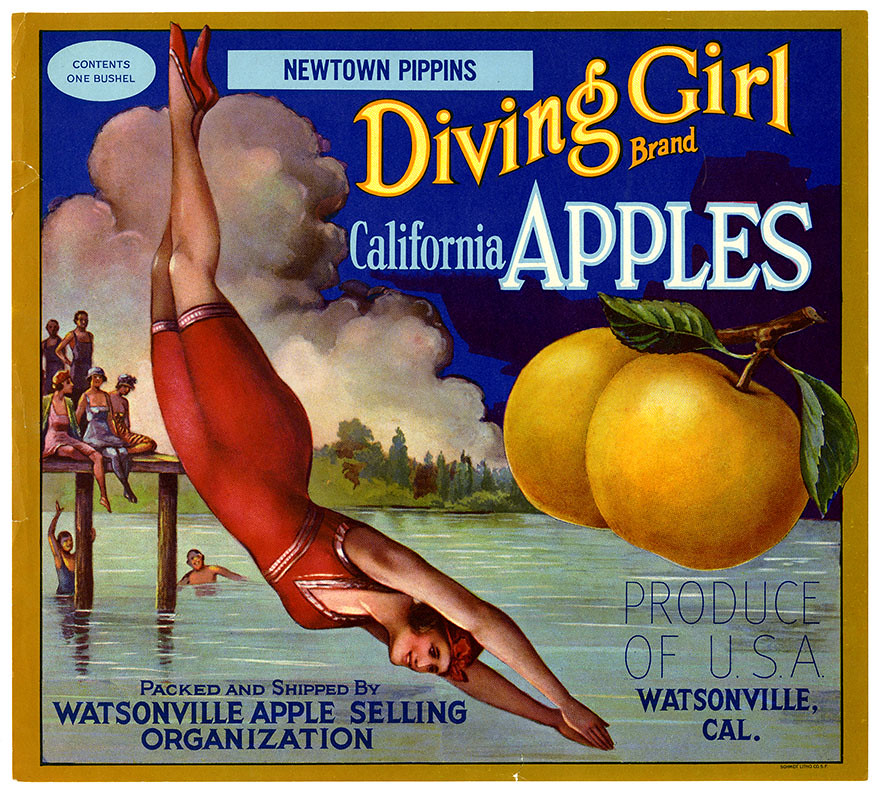
California apples crate label, Diving Girl Brand, Schmidt Litho. Co.: n.d.; posted 6 March 2015 (Crate, can and bottle label collection, California HIstorical Society)

Orange crate label, Redlands brand, Lehmann Printing and Lithographing Co.: n.d.; posted 6 March 2015 (Crate, can and bottle label collection, California HIstorical Society)
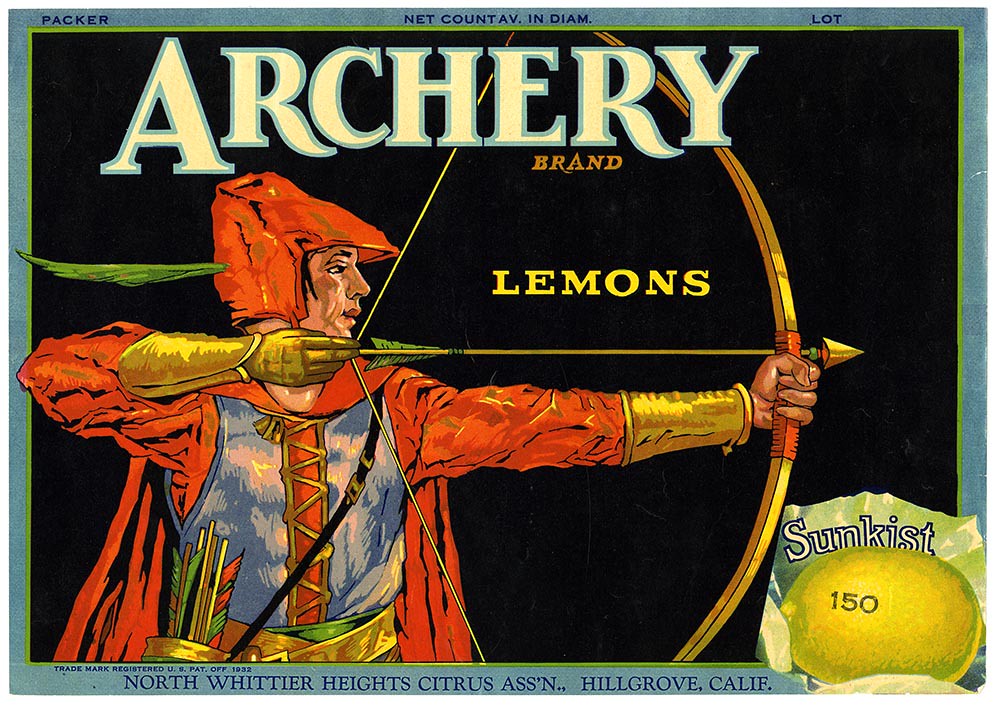
Lemon crate label, Archery Brand, Lehmann Printing and Lithographing Co.: n.d.; posted 6 March 2015 (Crate, can and bottle label collection, California HIstorical Society)
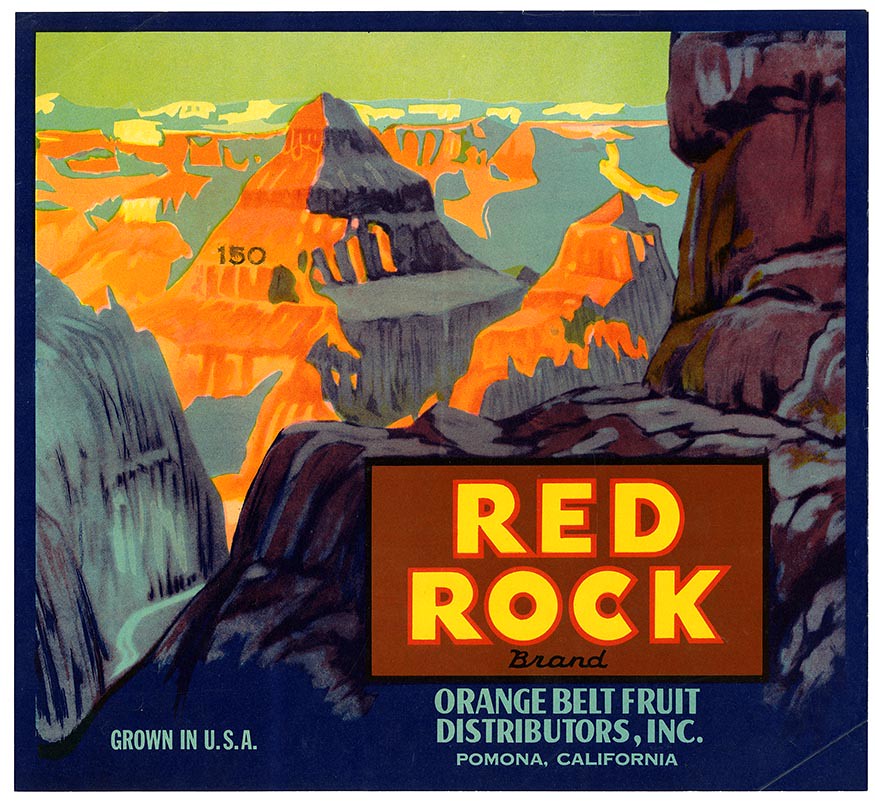
Citrus crate label, Red Rock brand, Lehmann Printing and Lithographing Co.: n.d.; posted 6 March 2015 (Crate, can and bottle label collection, California HIstorical Society)

Orange crate label, Victoria Brand, Schmidt Litho. Co.: n.d.; posted 6 March 2015 (Crate, can and bottle label collection, California HIstorical Society)
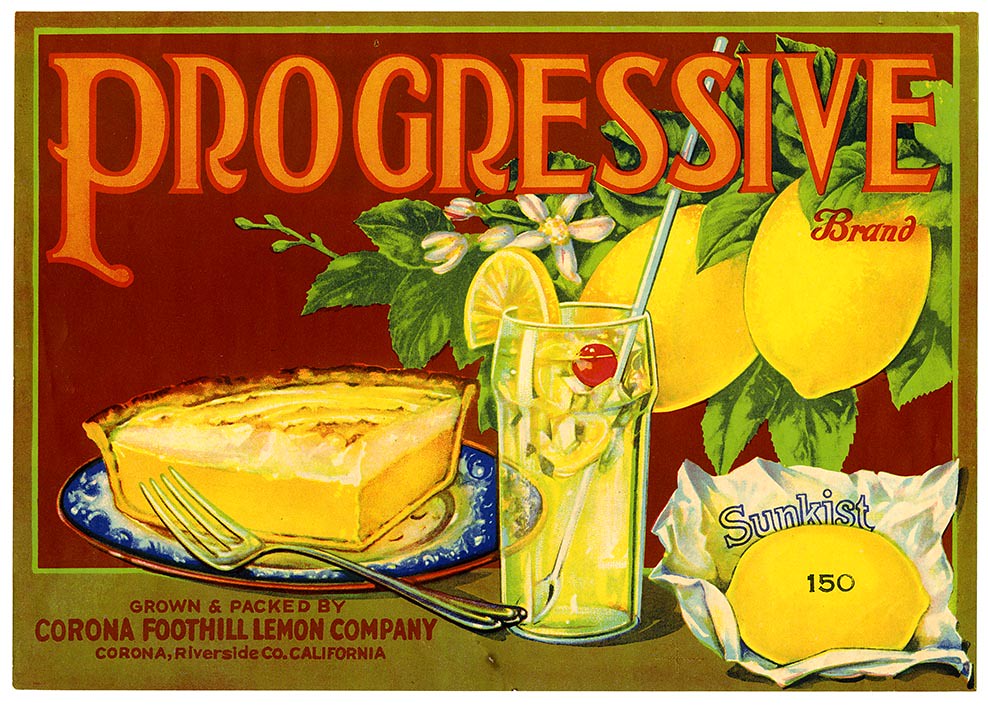
Lemon crate label, Progressive Brand, Lehmann Printing and Lithographing Co.: n.d.; posted 6 March 2015 (Crate, can and bottle label collection, California HIstorical Society)
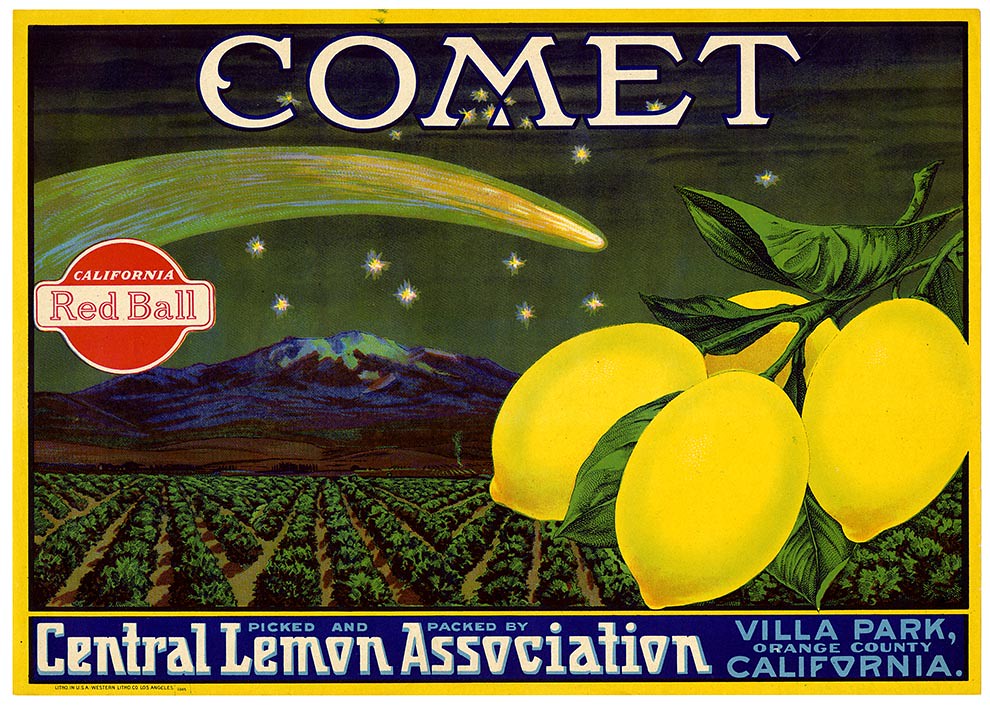
Lemon crate label, Comet brand, Western Litho. Co.: n.d.; posted 6 March 2015 (Crate, can and bottle label collection, California HIstorical Society)
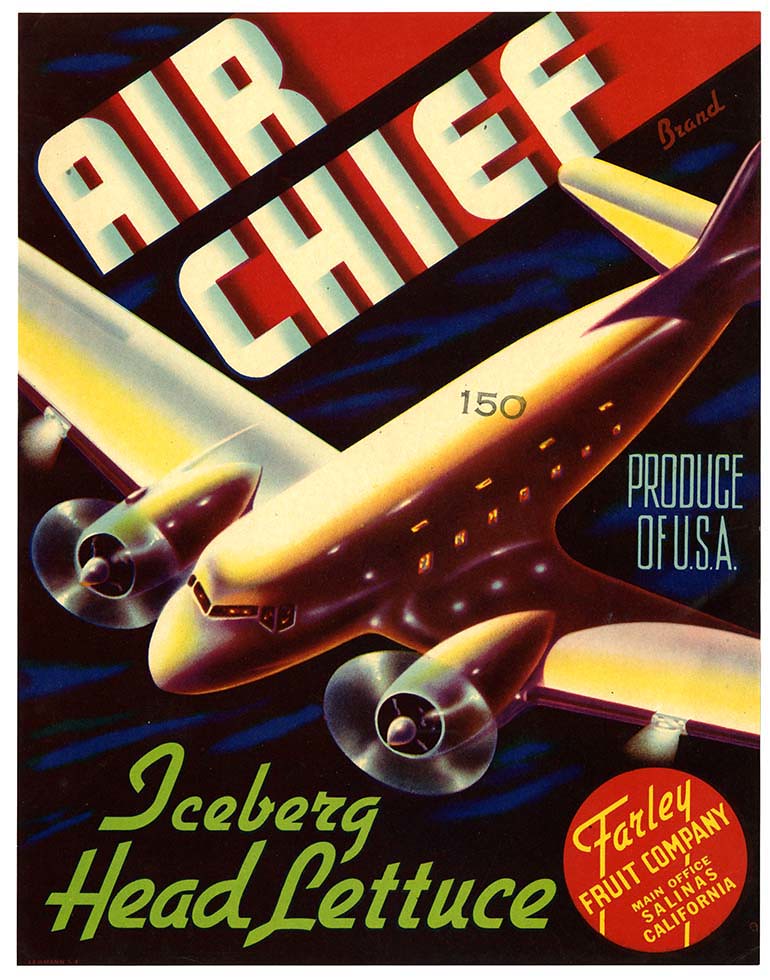
Lettuce crate label, Air Chief brand, Lehmann Printing and Lithographing Co.: n.d.; posted 4 March 2015 (Crate, can and bottle label collection, California HIstorical Society)
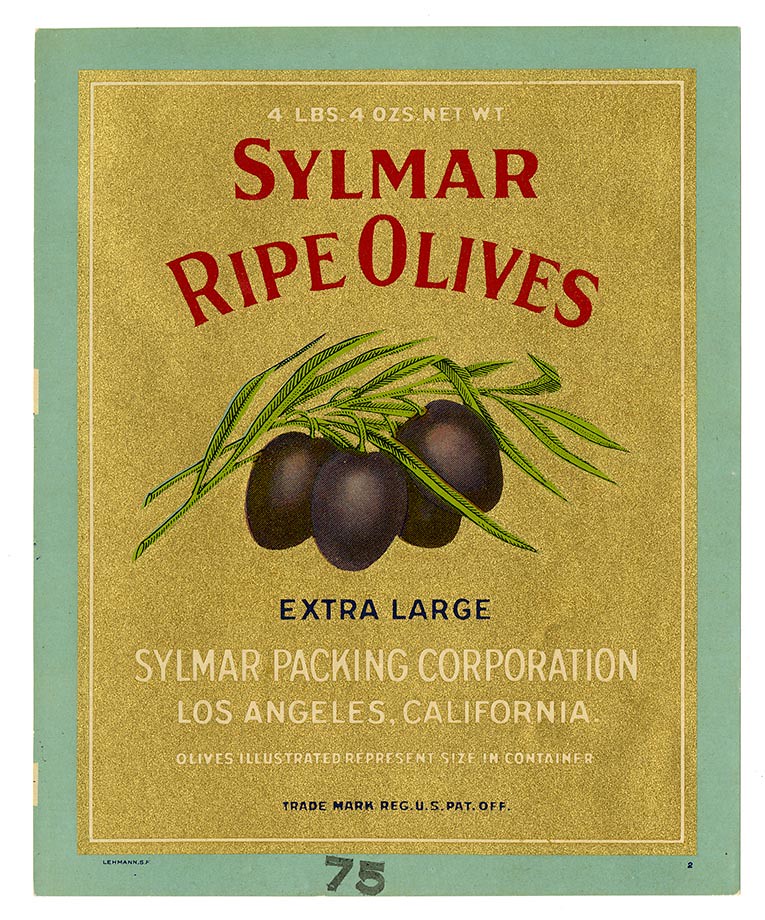
Olives label, Sylmar brand, Lehmann Printing and Lithographing Co.: n.d.; posted 4 March 2015 (Crate, can and bottle label collection, California HIstorical Society)
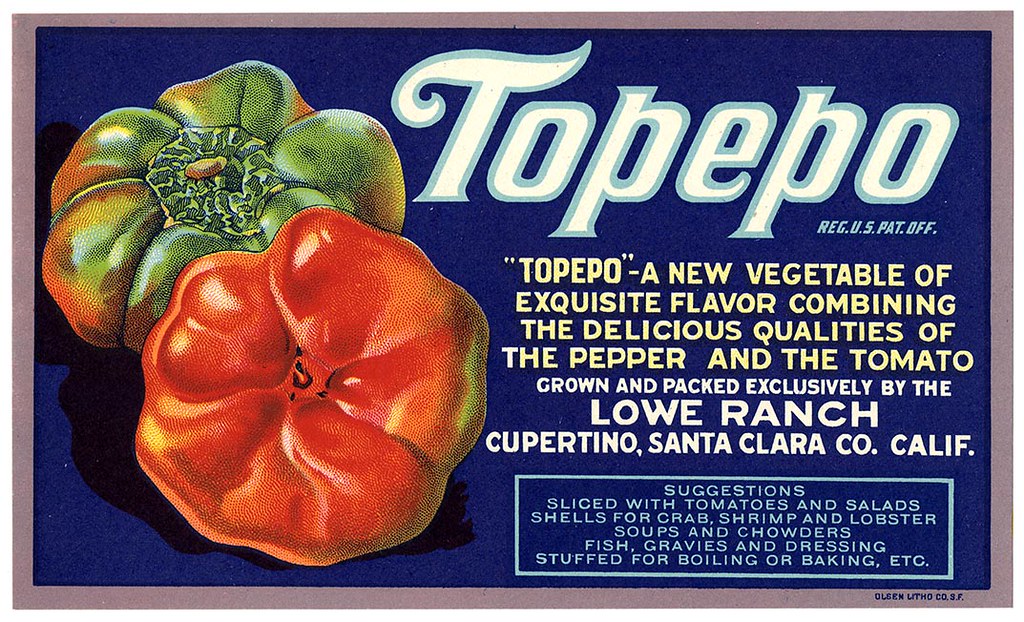
Topepo label, Olsen Litho. Co.: n.d.; posted 6 March 2015 (Crate, can and bottle label collection, California HIstorical Society)
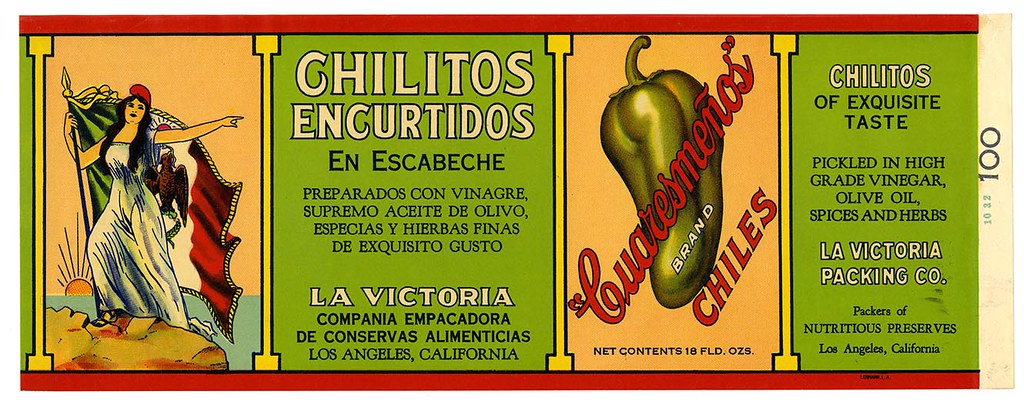
Chilitos encurtidos en escabeche label, Cuaresmeños brand, Lehmann Printing and Lithographing Co.: n.d.; posted 4 March 2015 (Crate, can and bottle label collection, California HIstorical Society)
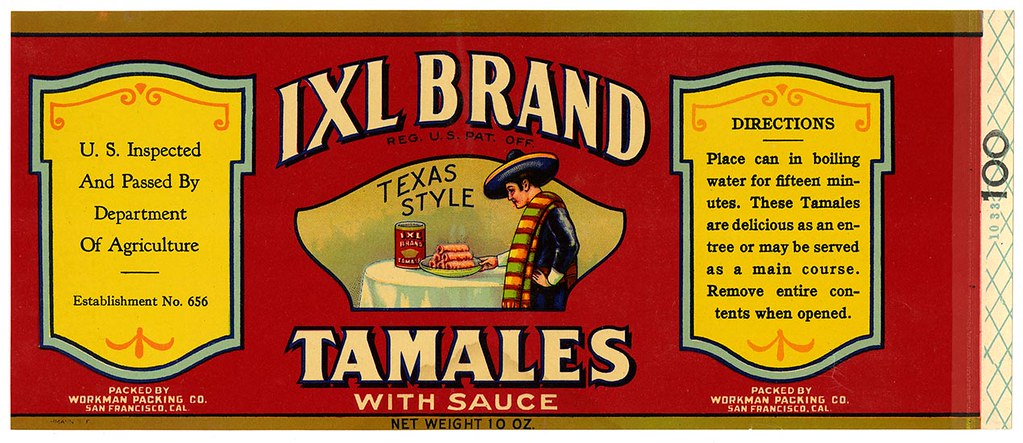
Texas style tamales with sauce label, IXL brand, Lehmann Printing and Lithographing Co.: n.d.; posted 4 March 2015 (Crate, can and bottle label collection, California HIstorical Society)

Chinese language label, Tux brand, Lehmann Printing and Lithographing Co.: n.d.; posted 4 March 2015 (Crate, can and bottle label collection, California HIstorical Society)
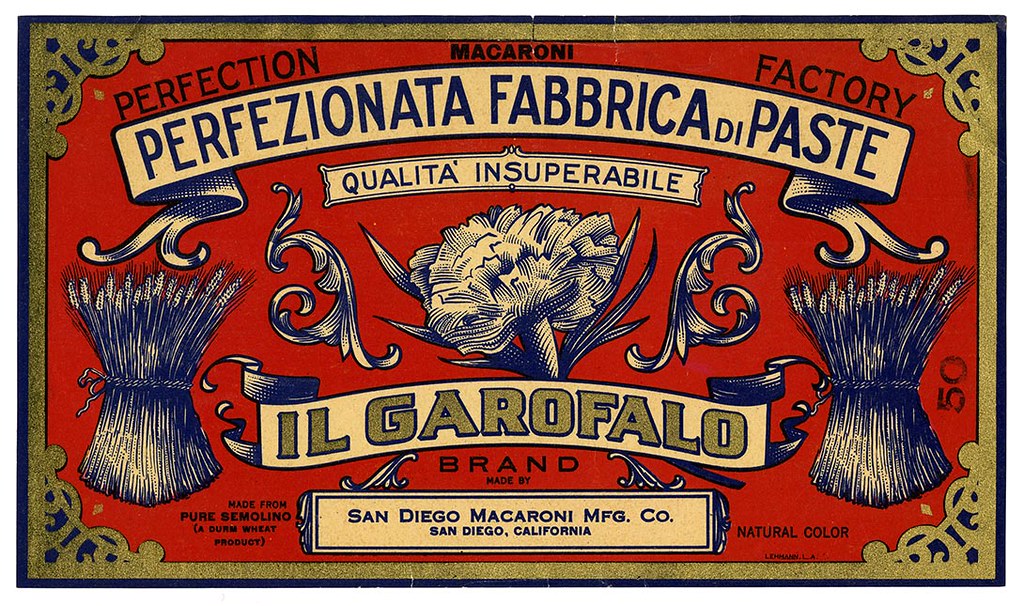
Macaroni label, Il Garofalo brand, Lehmann Printing and Lithographing Co.: n.d.; posted 4 March 2015 (Crate, can and bottle label collection, California HIstorical Society)
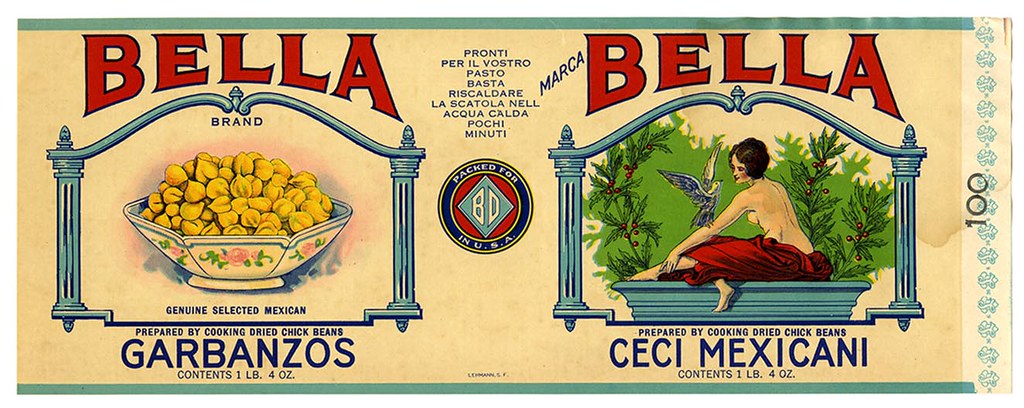
Ceci Mexicani label, Bella brand, Lehmann Printing and Lithographing Co.: n.d.; posted 4 March 2015 (Crate, can and bottle label collection, California HIstorical Society)
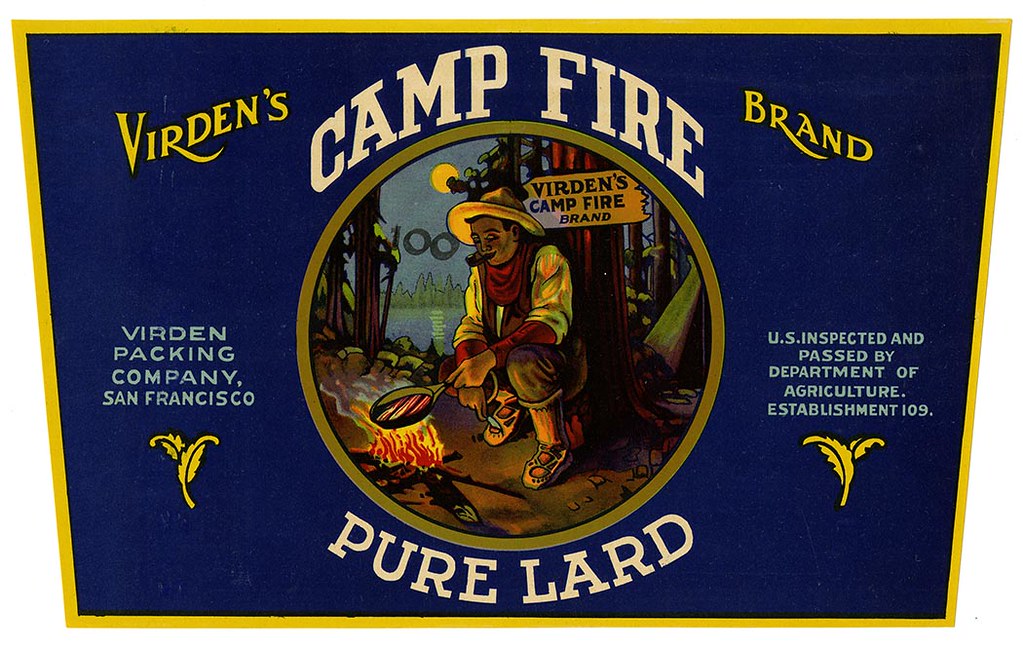
Lard label, Virden's Camp Fire brand, Lehmann Printing and Lithographing Co.: n.d.; posted 4 March 2015 (Crate, can and bottle label collection, California HIstorical Society)
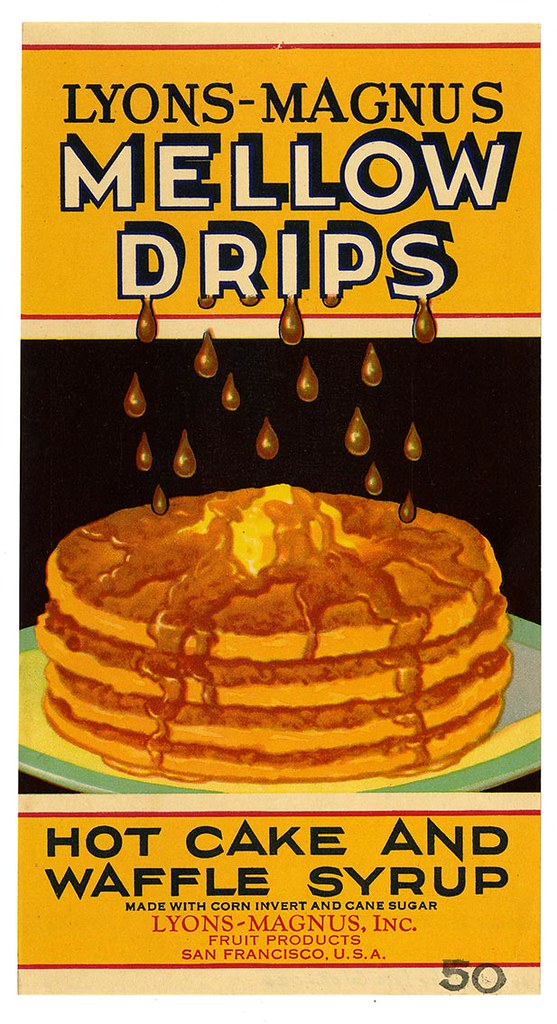
Hot cake and waffle syrup label, Lyons-Magnus Mellow Drip brand, Lehmann Printing and Lithographing Co.: n.d.; posted 4 March 2015 (Crate, can and bottle label collection, California HIstorical Society)
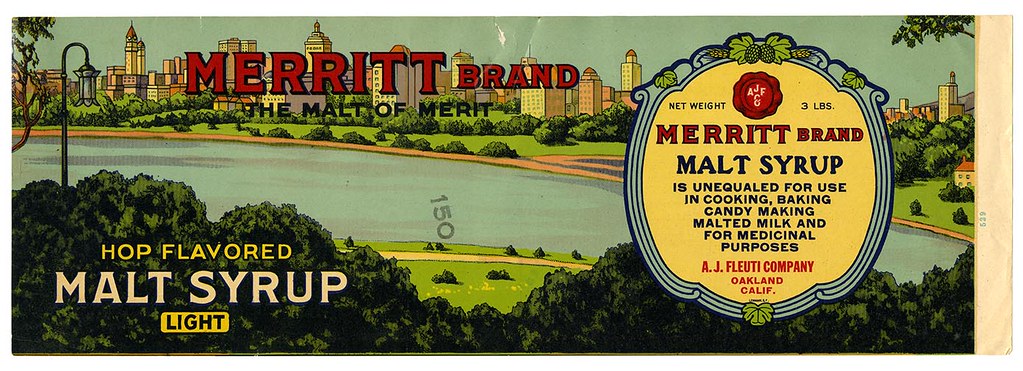
Hop flavored male syrup cake and waffle syrup label, Merritt brand, Lehmann Printing and Lithographing Co.: n.d.; posted 4 March 2015 (Crate, can and bottle label collection, California HIstorical Society)

Fromage de Camembert, Marque Chamois, Lehmann Printing and Lithographing Co.: n.d.; posted 4 March 2015 (Crate, can and bottle label collection, California HIstorical Society)
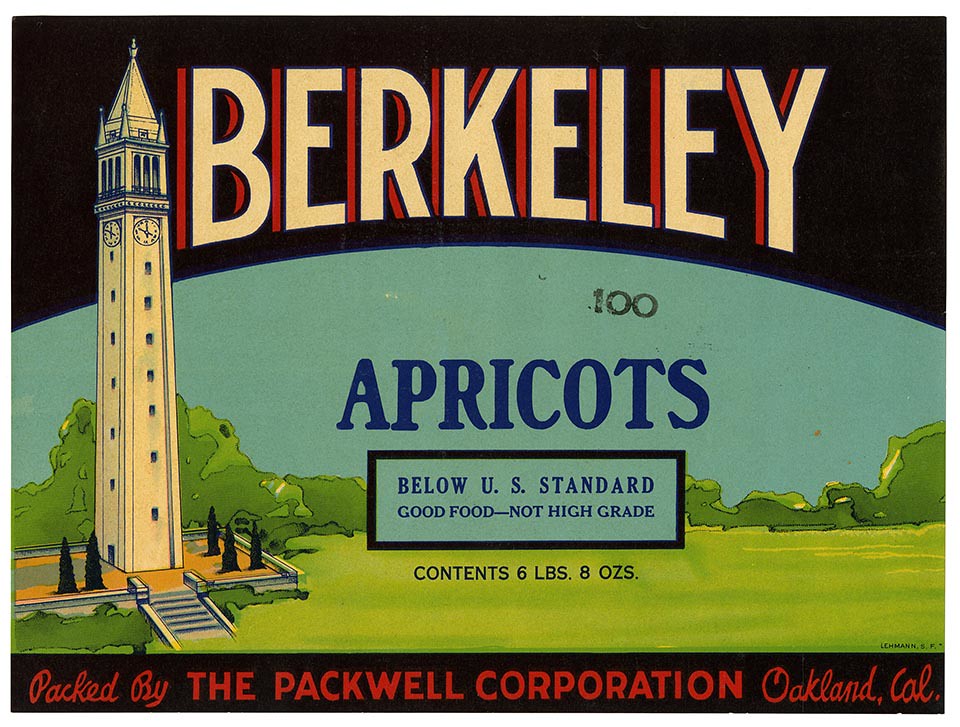
Apricots label, Berkeley brand, Lehmann Printing and Lithographing Co.: n.d.; posted 4 March 2015 (Crate, can and bottle label collection, California HIstorical Society)
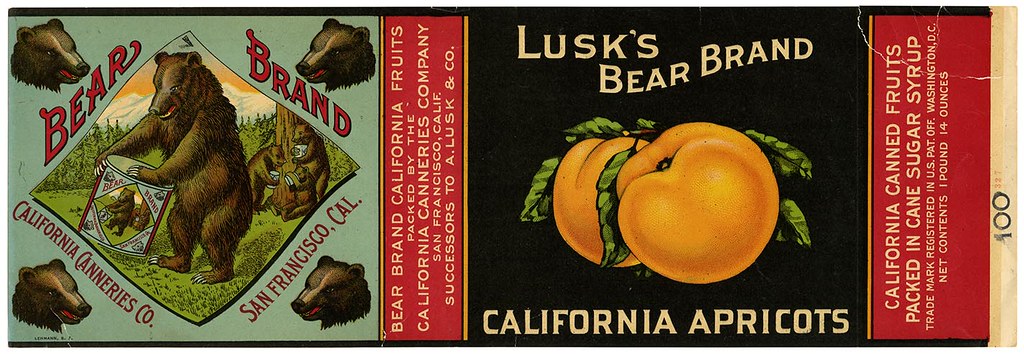
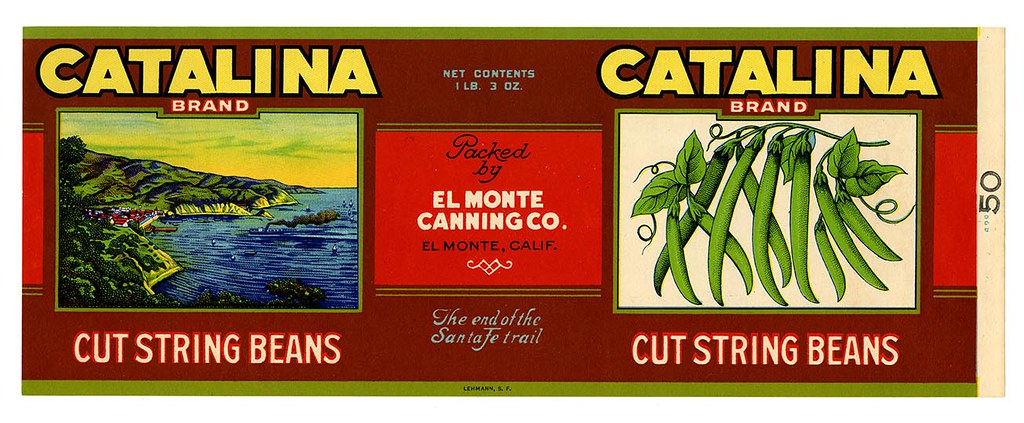
String beans label, Catalina brand, Lehmann Printing and Lithographing Co.: n.d.; posted 4 March 2015 (Crate, can and bottle label collection, California HIstorical Society)
When the rivers and the wells run dry
What happens when wells run dry in California's drought? #California Drought: image via Boing Boing @BoingBoing, 13 July 2015
#California Drought Please pray for rain in California. #ButSeriously this is a river...ummm...: image via Jen Lilley @jen_lilley, 2 July 2015

Summer has been hot, dry, and disappointing. Meh. #California Drought: image via Shekeela Jones@Shekeela Jones 2 July 2015
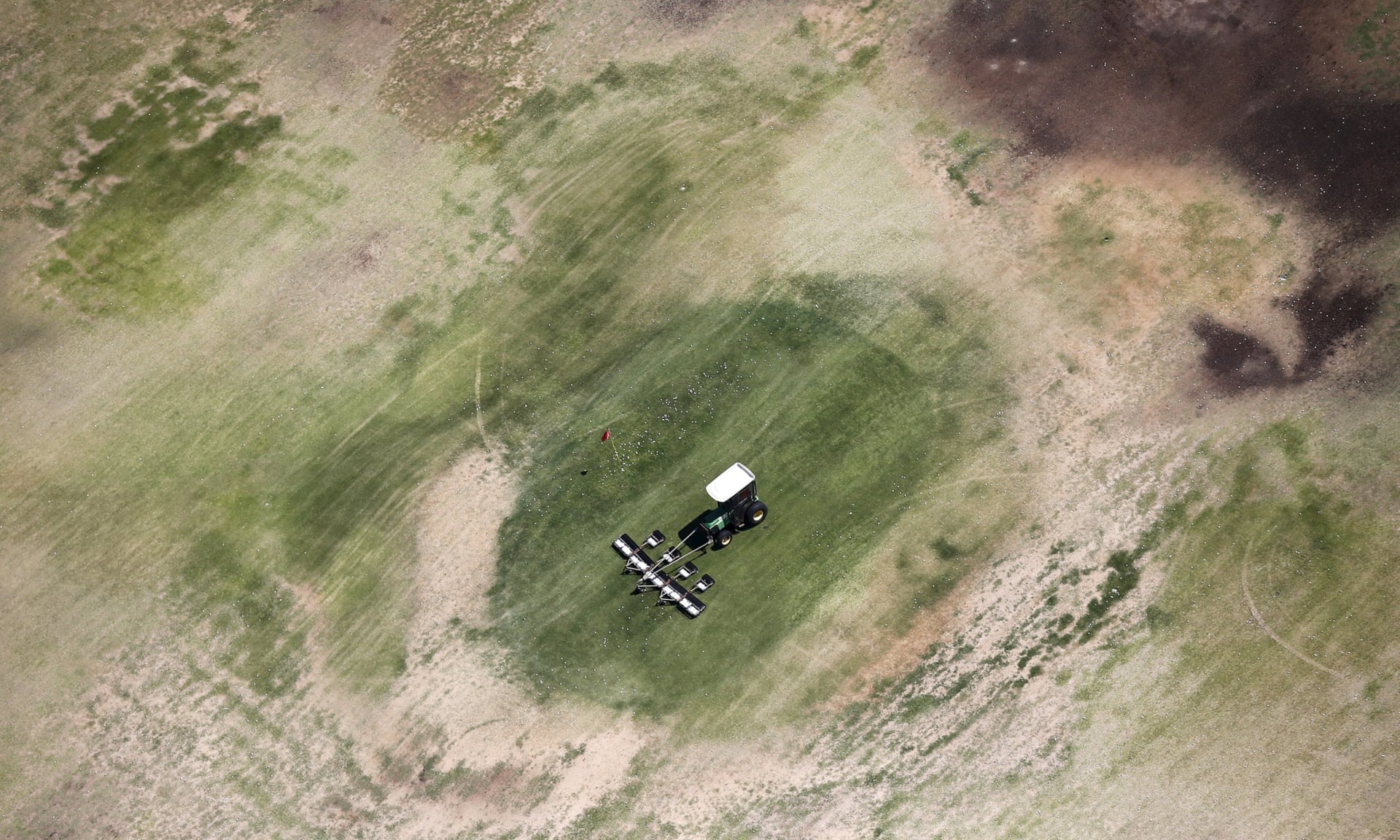
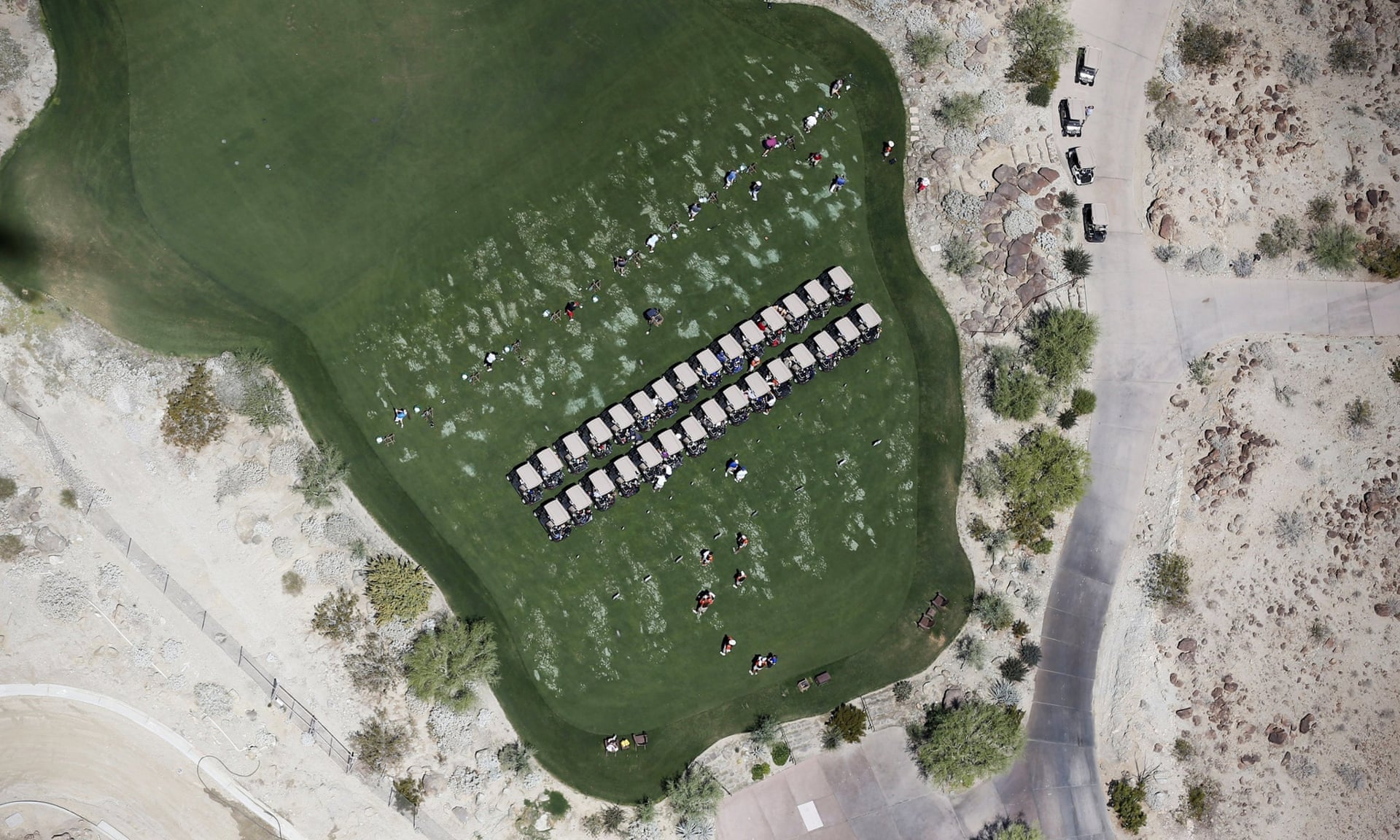
People play golf on a course in La Quinta: photo by Lucy Nicholson/Reuters via the Guardian, 9 May 2015
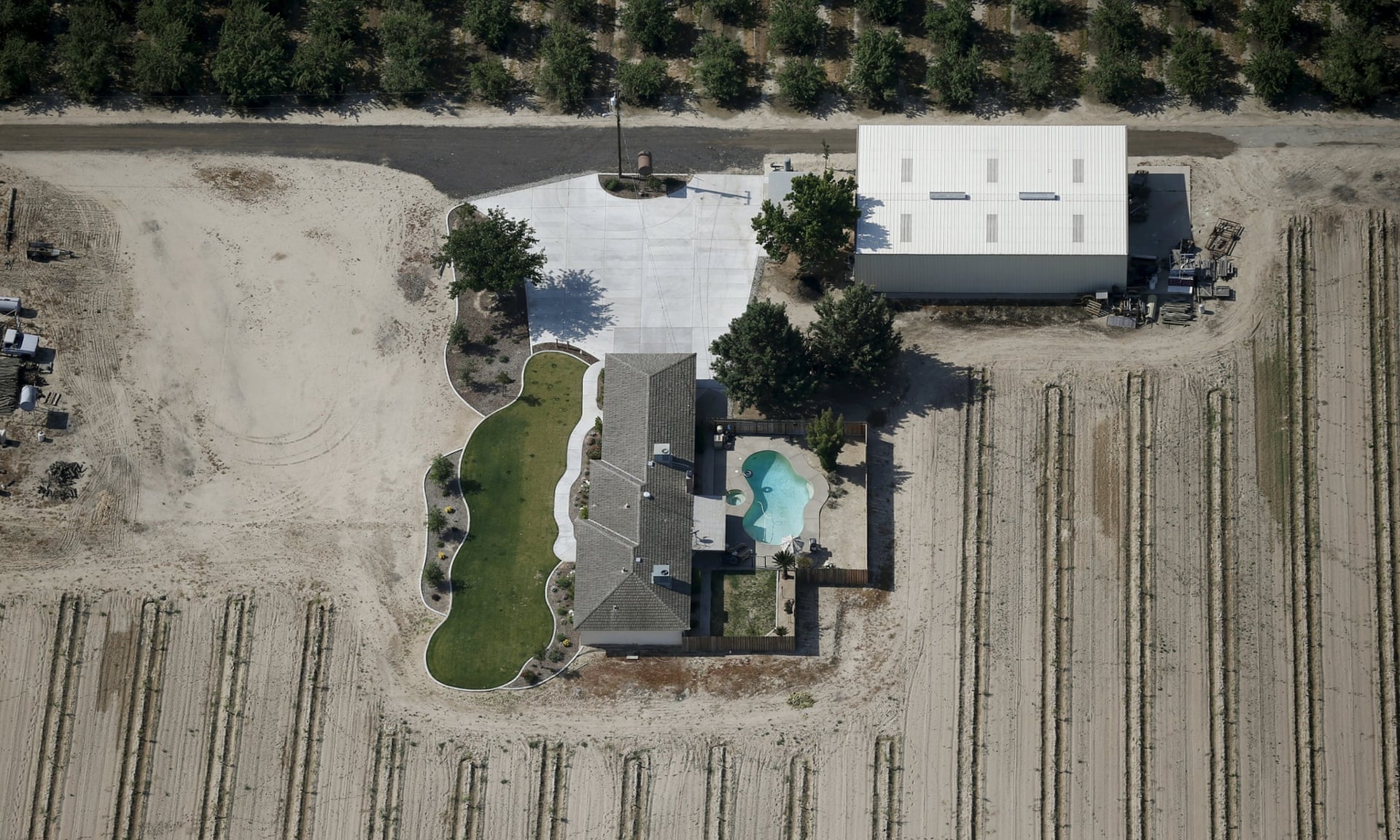
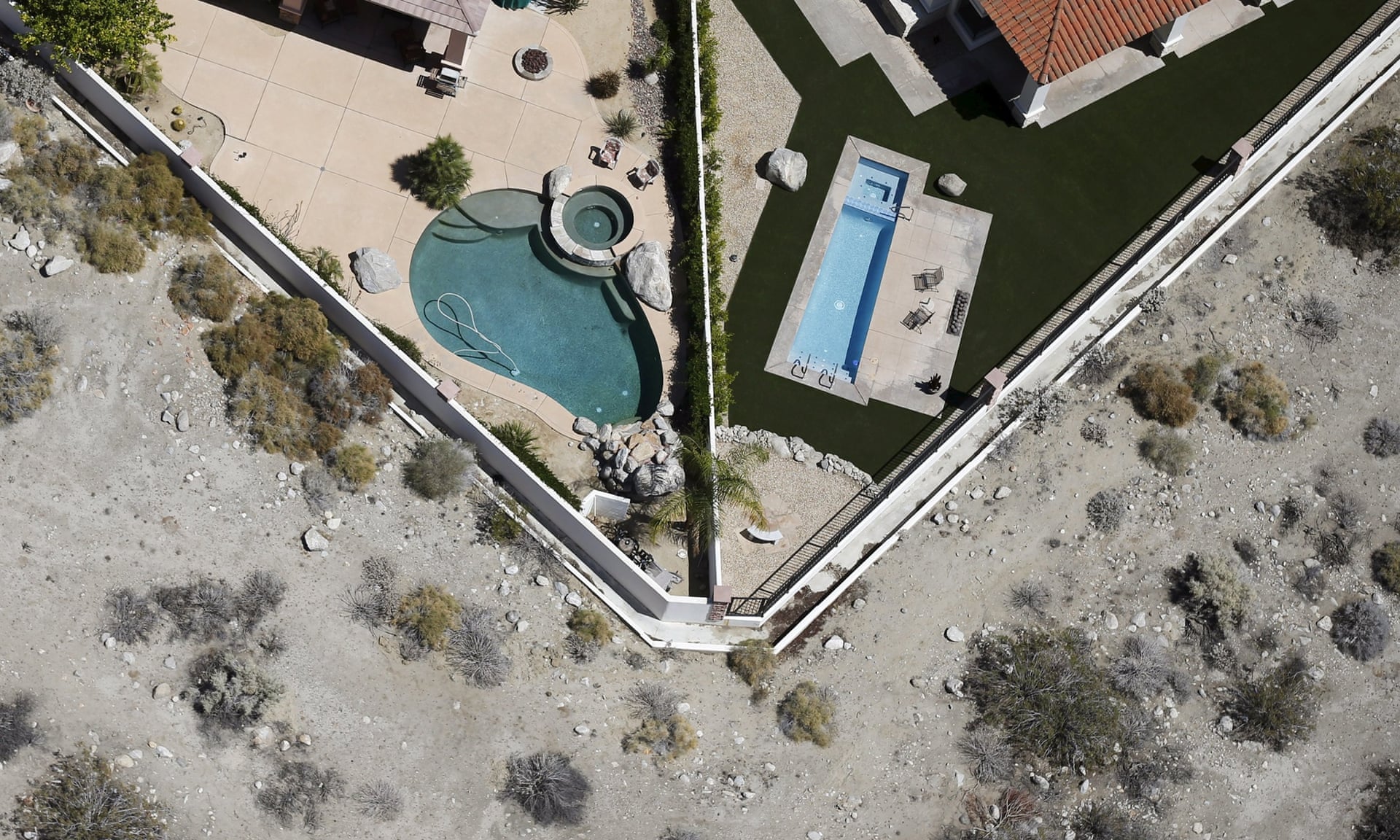
Swimming pools are seen behind homes in Palm Springs: photo by Lucy Nicholson/Reuters via the Guardian, 9 May 2015
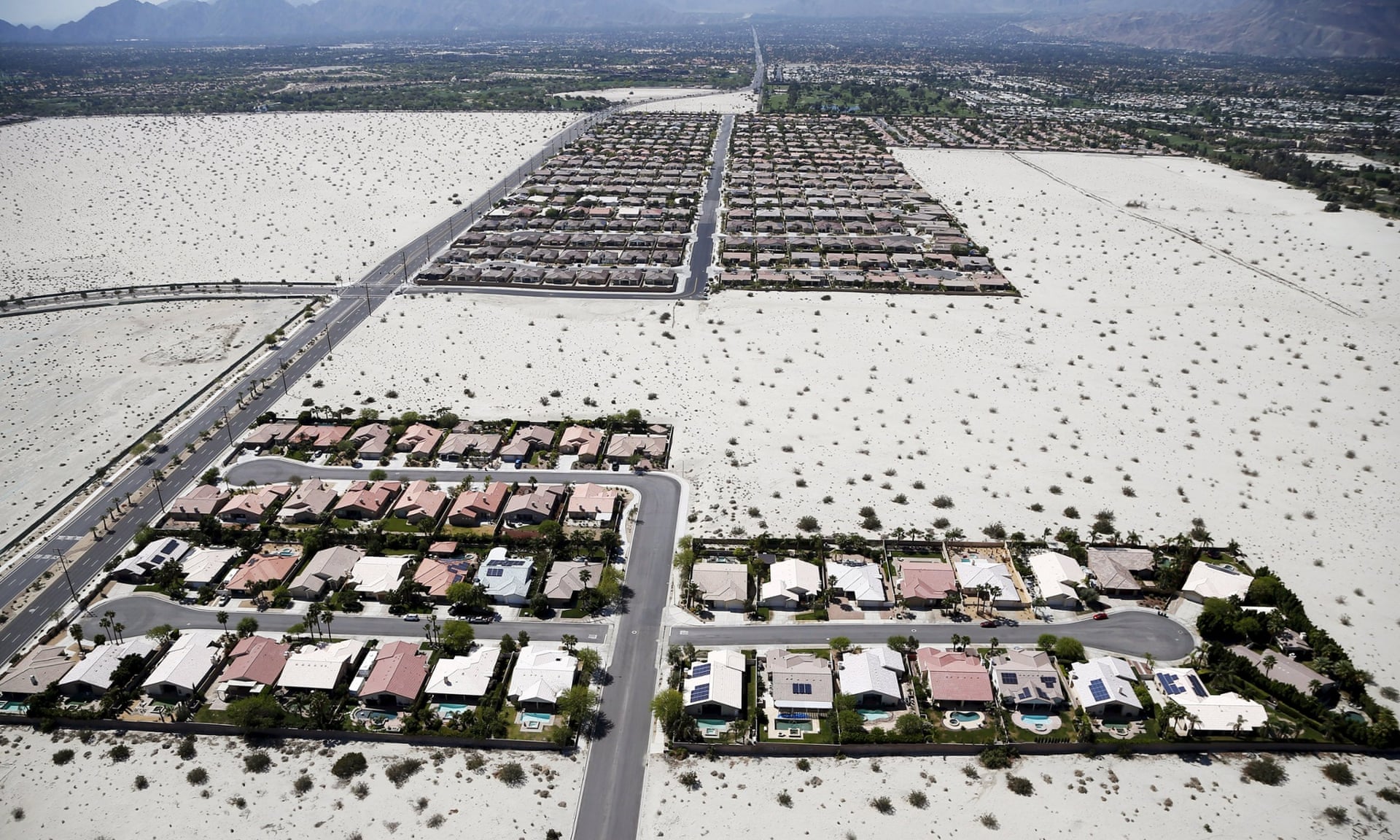
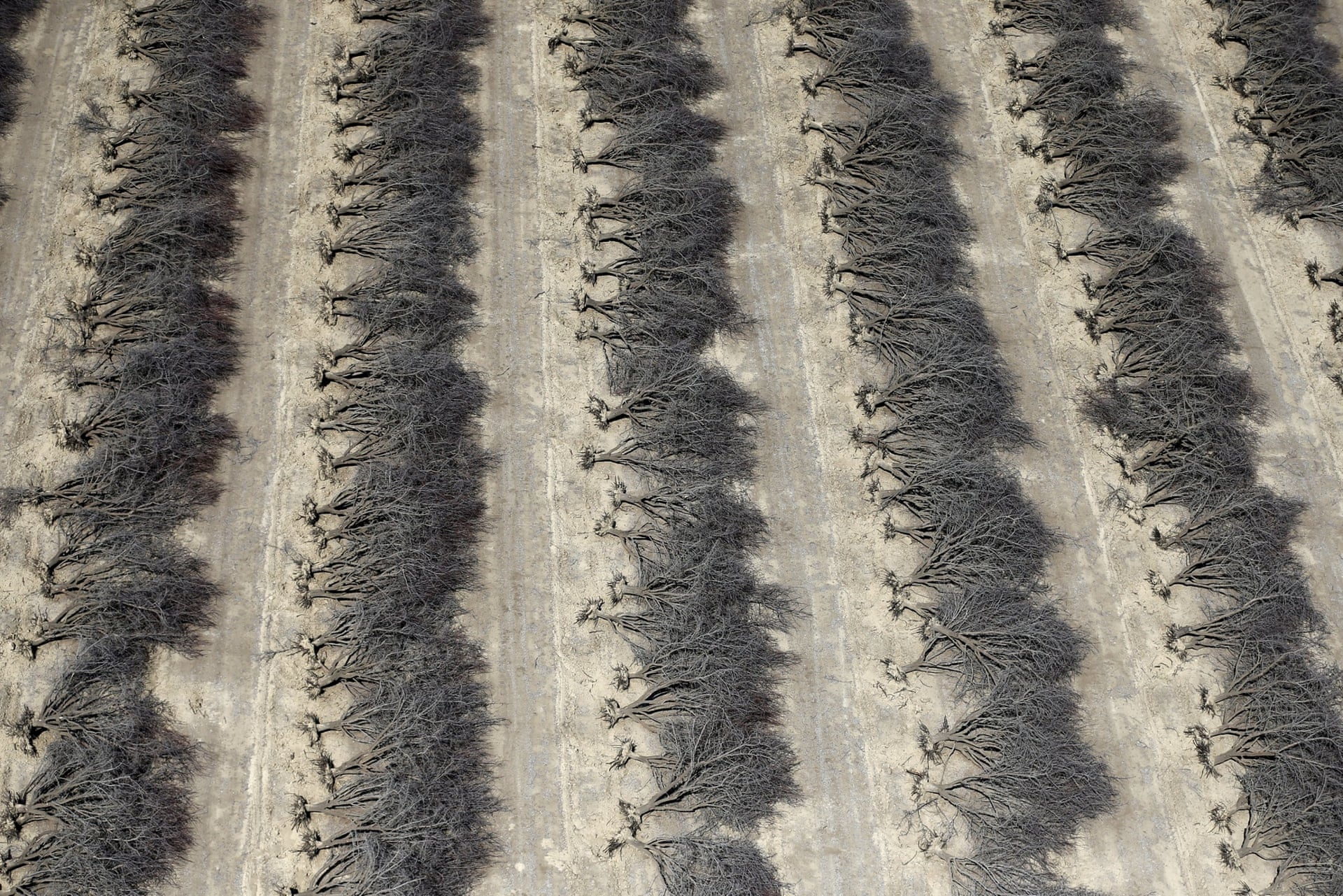
Almond trees fall victim to the drought in Coalinga in the Central Valley, California: photo by Lucy Nicholson/Reuters via the Guardian, 9 May 2015
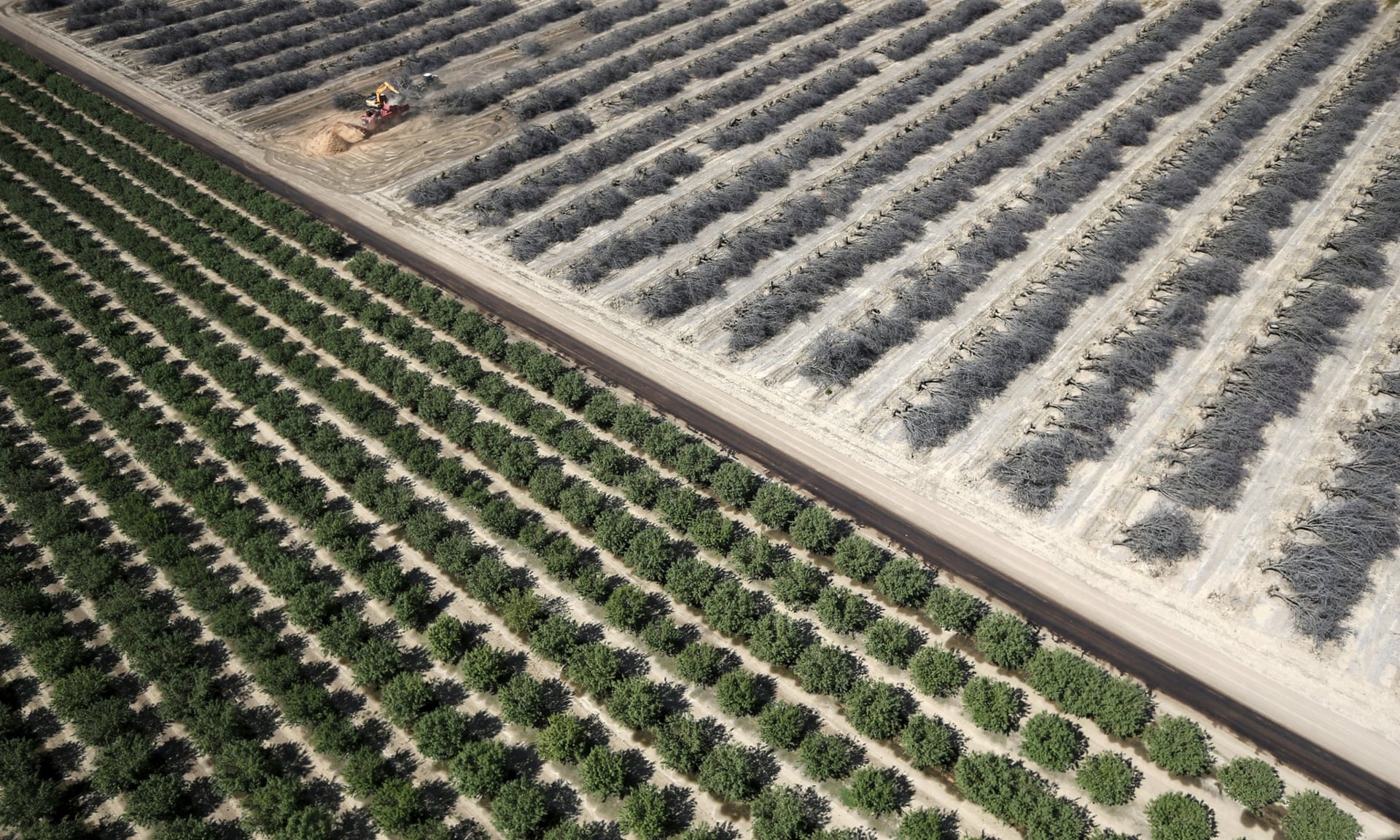
Growing and dead almond trees in Coalinga in the Central Valley: photo by Lucy Nicholson/Reuters via the Guardian, 9 May 2015
Mean Green
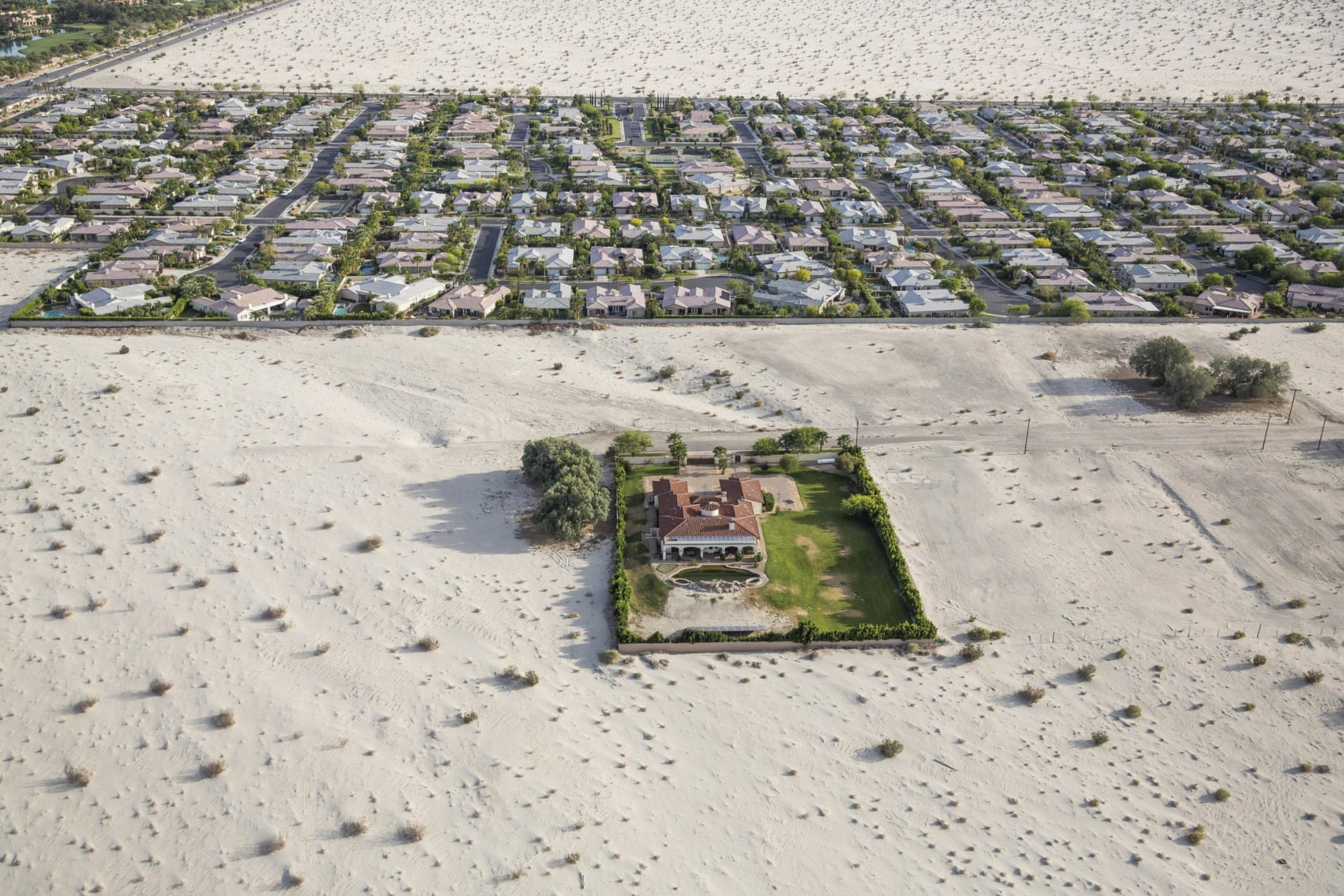
The encroaching desert surrounds homes in the golf resort city of Rancho Mirage, southern California. A fourth year of drought has prompted state governor Jerry Brown to order a 25% cut in domestic water consumption: photo by Damon Winter/New York Times/Redux/Eyevine via the Guardian, 11 April 2015
Every one of the neighbours has a special exemption
or so it seems from all those dripping lawns in the morning
but
it's
every
over
developed
unit
for itself, now

Homes in Rancho Mirage, California, in the Coachella Valley. Gov. Jerry Brown has ordered a 25 percent statewide reduction in non-agricultural water use: photo by Damon Winter/The New York Times, 4 April 2015




A home swimming pool in Rancho Mirage: photo by Damon Winter/The New York Times, 4 April 2015

Homes in Rancho Mirage, California, in the Coachella Valley. Gov. Jerry Brown has ordered a 25 percent statewide reduction in non-agricultural water use: photo by Damon Winter/The New York Times, 4 April 2015

In the middle of a major drought and there is a man made river running down the street #California Drought #LosAngeles: image via Bob. O. @VinoMutt, 2 July 2015

In the middle of a major drought and there is a man made river running down the street #California Drought #LosAngeles: image via Bob. O. @VinoMutt, 2 July 2015

In the middle of a major drought and there is a man made river running down the street #California Drought #LosAngeles: image via Bob. O. @VinoMutt, 2 July 2015

A home swimming pool in Rancho Mirage: photo by Damon Winter/The New York Times, 4 April 2015



Footprints and a tire in dried mud along the banks of the Salton Sea: photo by Damon Winter/The New York Times, 4 April 2015

A housing development in Cathedral City, near Palm Springs: photo by Damon Winter/The New York Times, 4 April 2015
Will the Golden State turn brown -- ?
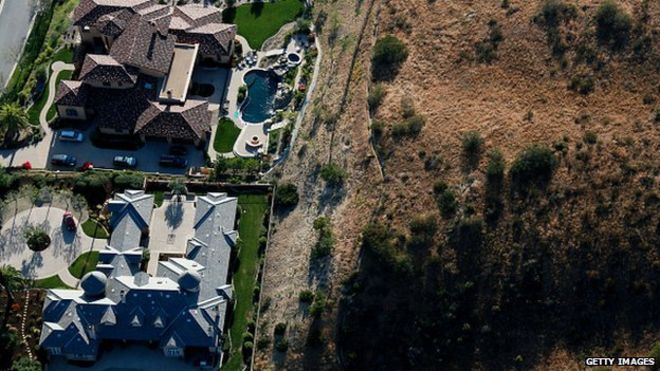
Will
the Golden State turn brown? BBC's @peterbowes looks at the
#CaliforniaDrought: image via BBC News US @BBCNewsUS, 6 April 2015
This #California Drought is making summer look more like fall: image via Paty Ventura @patyventura, 12 July 2015
SMDH!! RT @michaelallenmar: California used 70 million gallons of water in Fracking in 2014 @Reuters: image via TheRedWineGal @TheRedWineGal, 3 April 2015
#CaliforniaDrought Let @JerryBrownGov know you want to #unfrackcal #CA drought: image via Hattori Hanzo @Oni_no_Hanzo, 3
April 2015
Baking

Farming Fields by the River. San Luis Rey River, Oceanside, California: photo by M. Dolly, June 2015
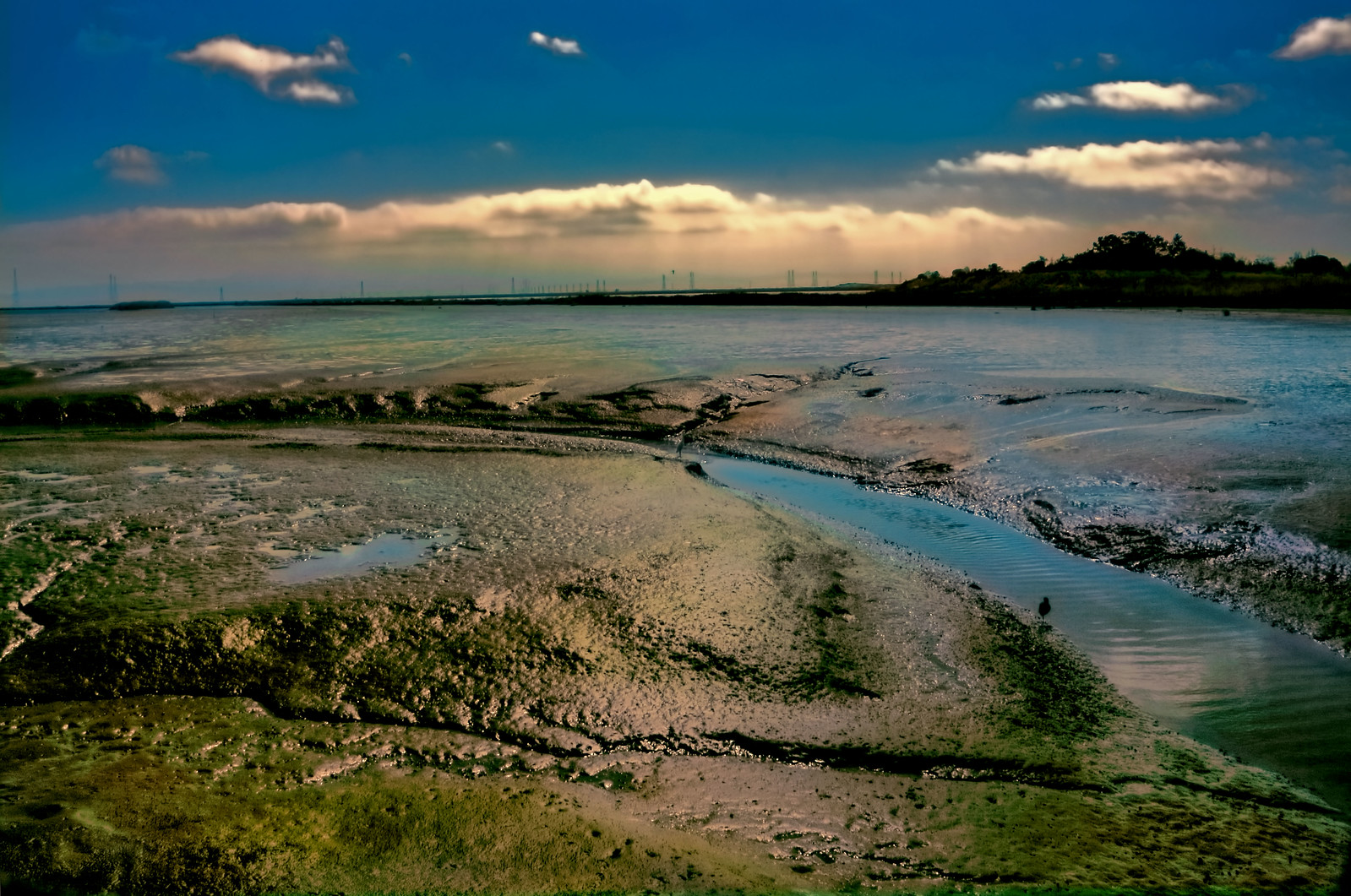
Shoreline Wildlife Refuge, fourth year into severe drought. Normally, you wouldn't see any ground at all, it would all be water, as far as the eye can see: photo by bluesbby, 9 July 2015
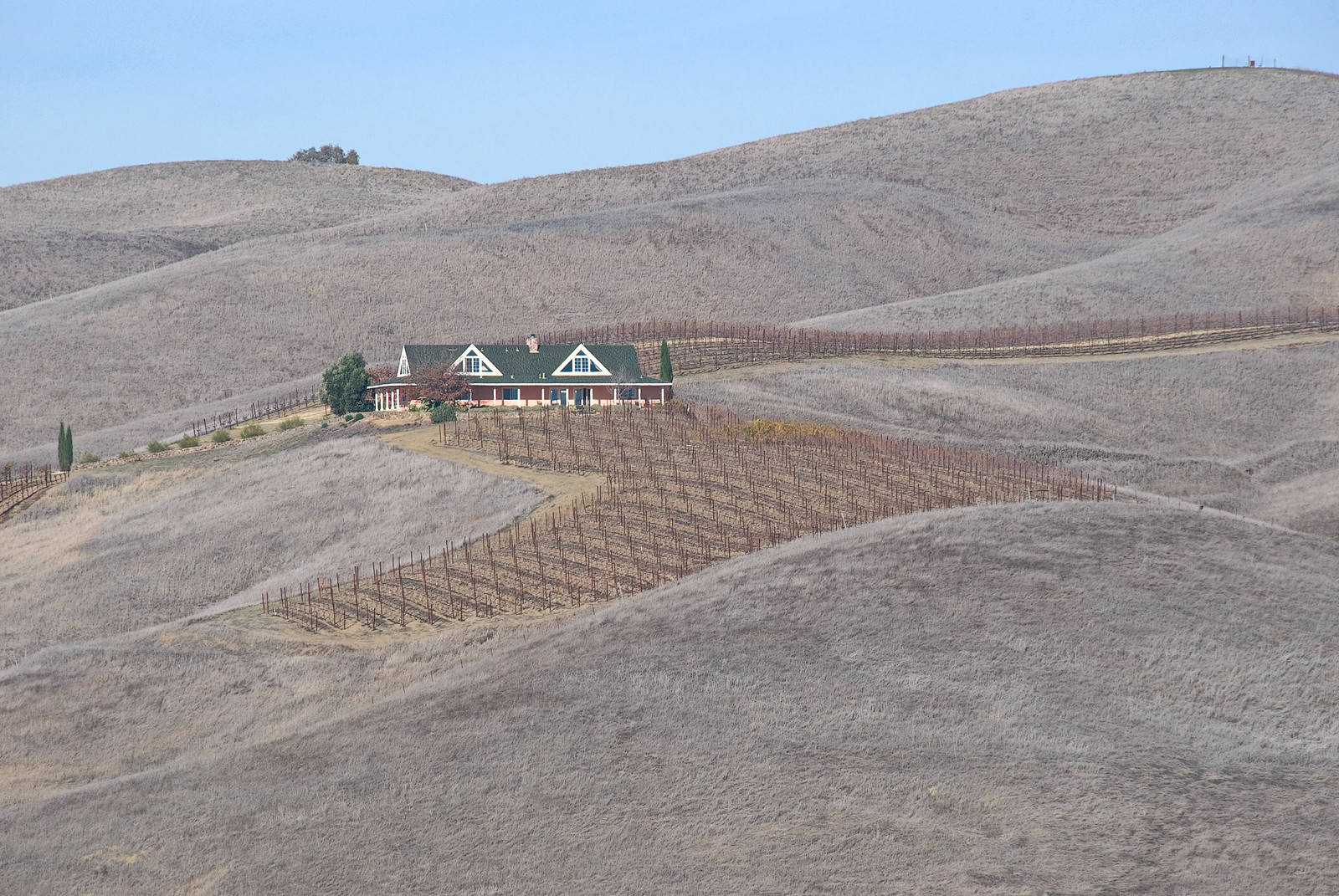
California Drought. Winery, Napa, California: photo by John Weiss, 1 December 2013
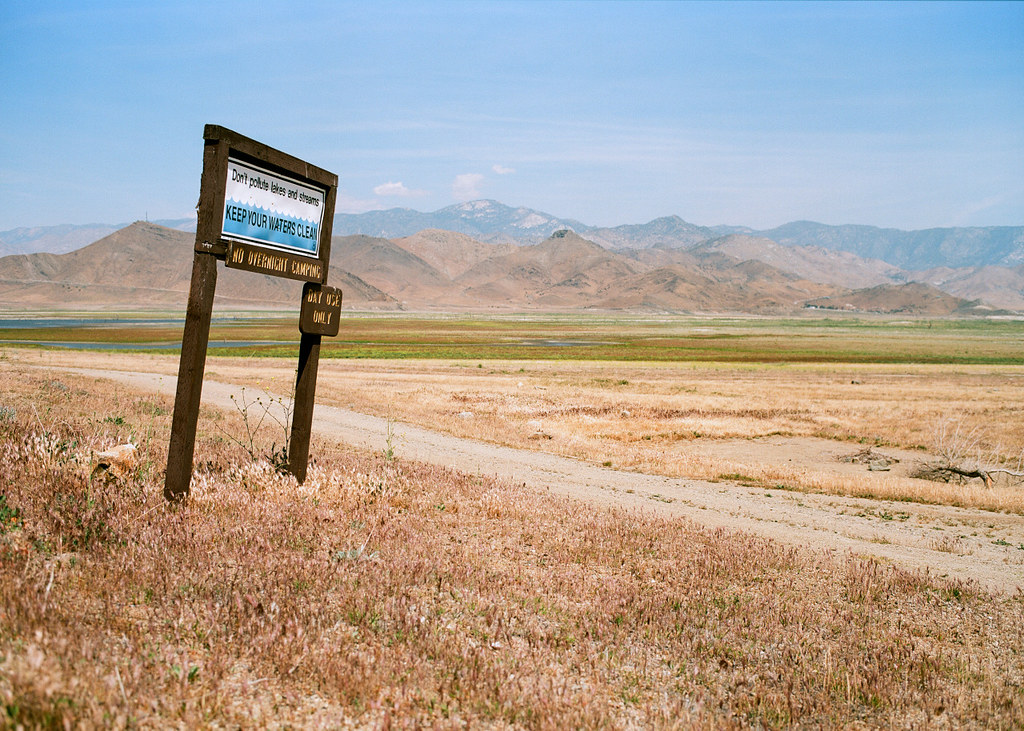
A sign at Lake Isabella reminds me to keep our water clean as I ride into the dried-up lake bed, April 2015: photo by Chris Wronski, 24 June 2015
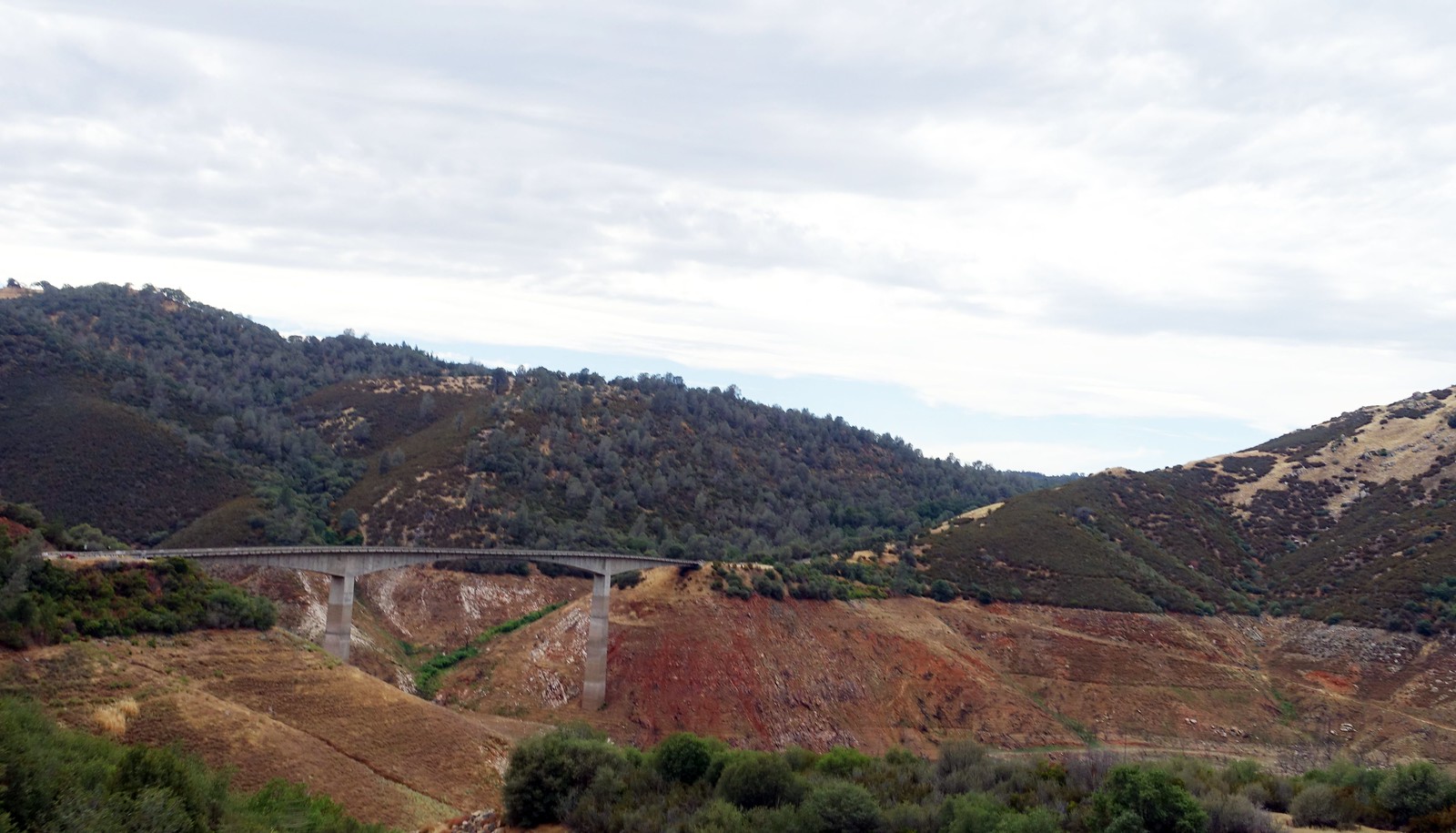
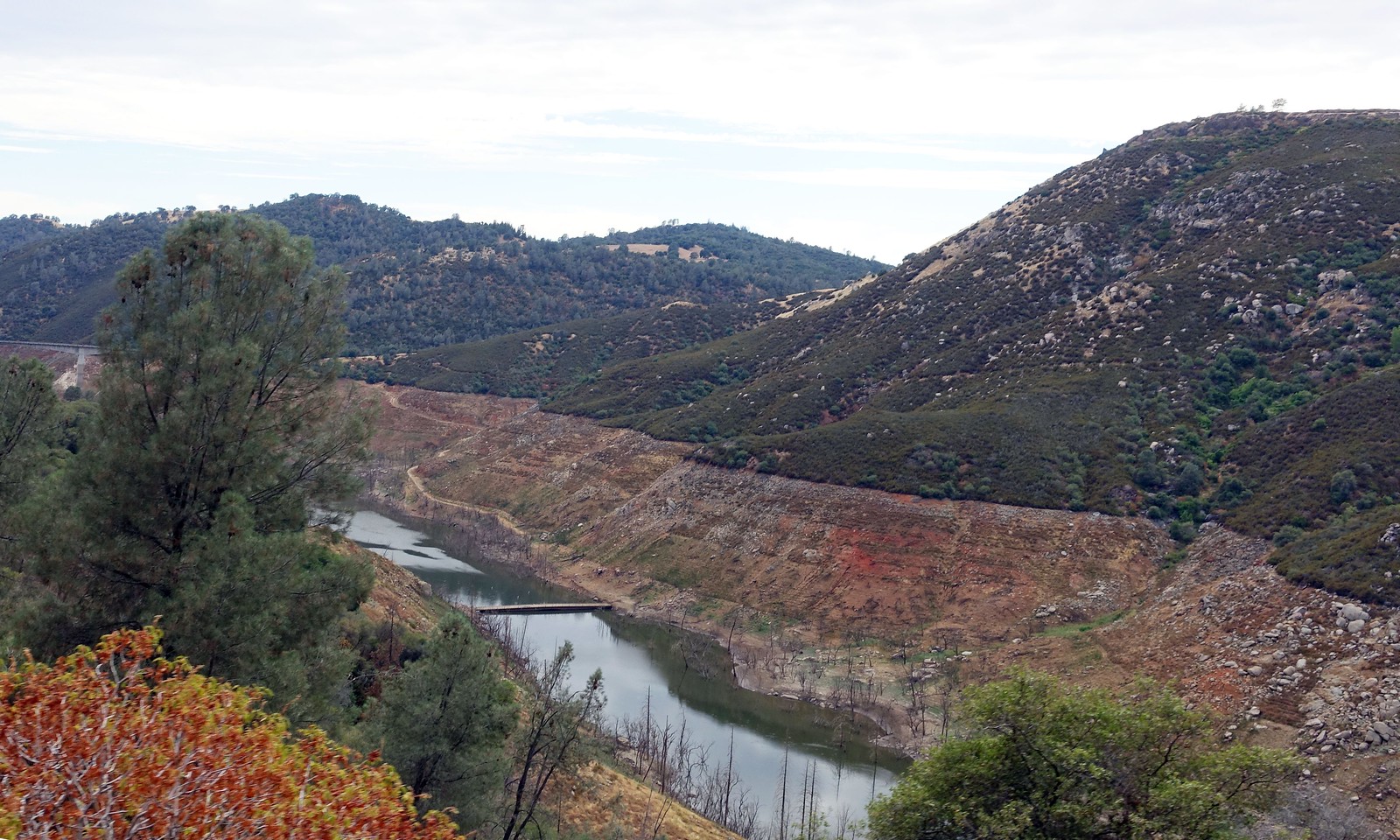
New Melones (almost empty) Reservoir, California: photo by Stuart Rankin, 28 June 2015
Conflagration: The fiery face of the future in Eden
Firefighters use small headlamps at night to battle flames from the 3,500 acre North fire after it ripped through the Cajon Pass and headed north on July 17, 2015, in Baldy Mesa, California: photo by Gina Ferazzi / Los Angeles Times, 18 July 2015
A brush fire burns near 15 Freeway: photo by KTLA via Los Angeles Times, 17 July 2015
A
big-rig burns on the 15 Freeway in the Cajon Pass as a brush fire that
has grown to more than 2,000 acres moves toward two mountain
communities: photo by KTLA via Los Angeles Times, 17 July 2015
A
big-rig burns on the 15 Freeway in the Cajon Pass as a brush fire that
has grown to more than 2,000 acres moves toward two mountain
communities: photo by KTLA via Los Angeles Times, 17 July 2015
A
big-rig burns on the 15 Freeway in the Cajon Pass as a brush fire that
has grown to more than 2,000 acres moves toward two mountain
communities: photo by KTLA via Los Angeles Times, 17 July 2015
A big-rig burns on the 15 Freeway in the Cajon Pass as a brush fire that has grown to more than 2,000 acres moves toward two mountain communities: photo by KTLA via Los Angeles Times, 17 July 2015
A
big-rig burns on the 15 Freeway in the Cajon Pass as a brush fire that
has grown to more than 2,000 acres moves toward two mountain
communities: photo by KTLA via Los Angeles Times, 17 July 2015
A
fast-moving brush fire swept over the 15 Freeway in San Bernardino
County on Friday, engulfing cars and threatening several mountain
communities: photo by KTLA via Los Angeles Times, 17 July 2015.
A
fast-moving brush fire swept over the 15 Freeway in San Bernardino
County on Friday, engulfing cars and threatening several mountain
communities: photo by KTLA via Los Angeles Times, 17 July 2015
Cars
stop on the 15 Freeway in the Cajon Pass as a brush fire that has grown
to more than 2,000 acres moves toward two mountain communities: photo by Austin Stefanovich via Los Angeles Times, 17 July 2015
A Melted Shell
Burned cars sit on a car carrier after a brush fire jumped the 15 Freeway in the Cajon Pass: photo by Gina Ferazzi / Los Angeles Times, 17 July 2015
A burned boat sits on the southbound 15 Freeway in the Cajon Pass: photo by Gina Ferazzi / Los Angeles Times, 17 July 2015
The
melted shell of a big rig after the fast moving North Fire forced
drivers and passengers to abandon their vehicles in the Cajon Pass: photo by Gina Ferazzi / Los Angeles Times, 17 July 2015
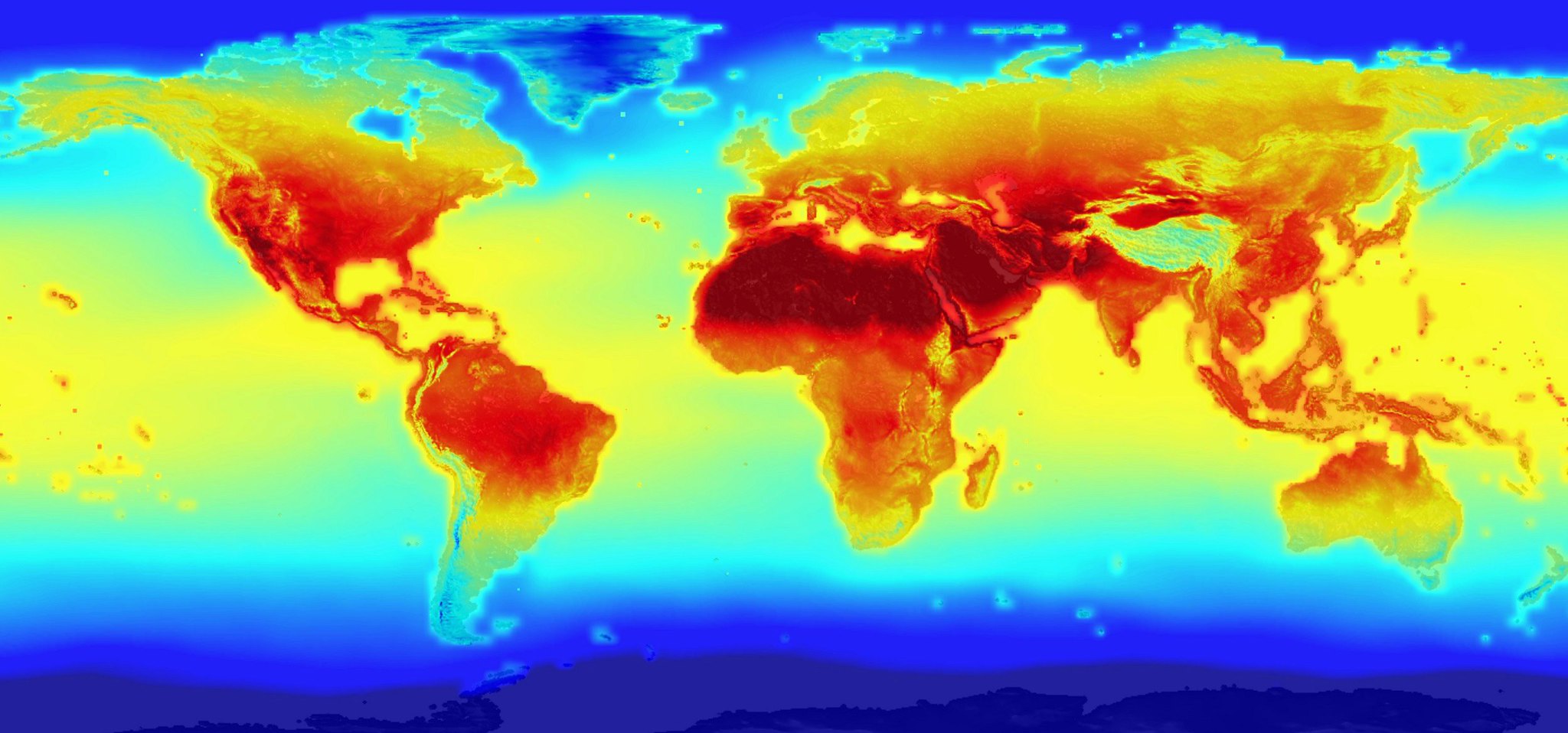
The Earth in 2100. Edited NASA visualization of what climate change (specifically temperature) will probably look like by the year 2100: image by Stuart Rankin, 10 June 2015

The Earth in 2100. Edited NASA visualization of what climate change (specifically temperature) will probably look like by the year 2100: image by Stuart Rankin, 10 June 2015
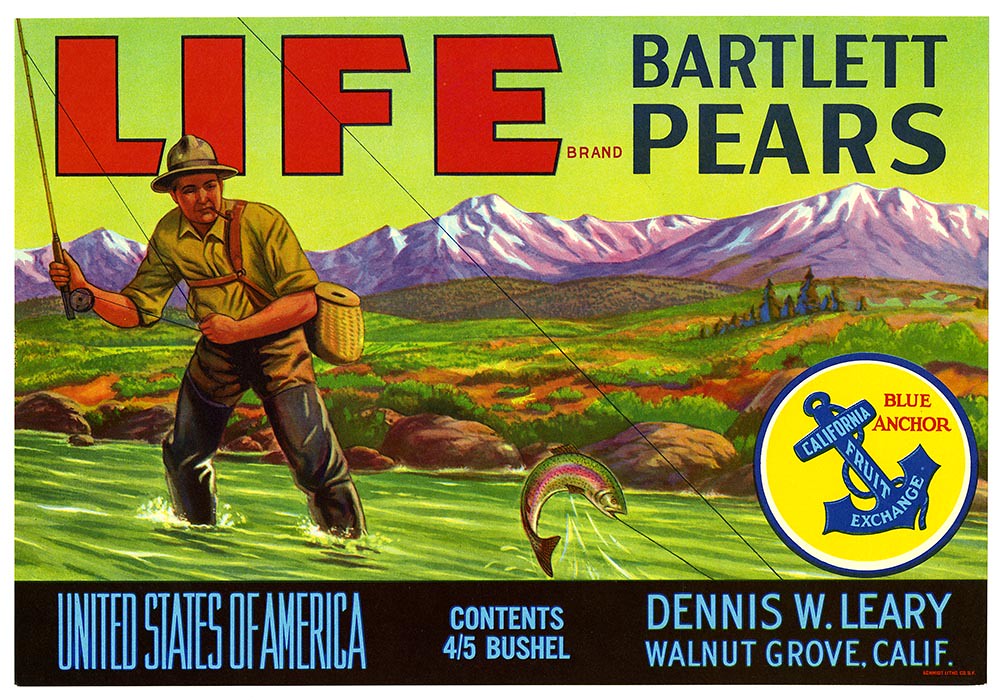

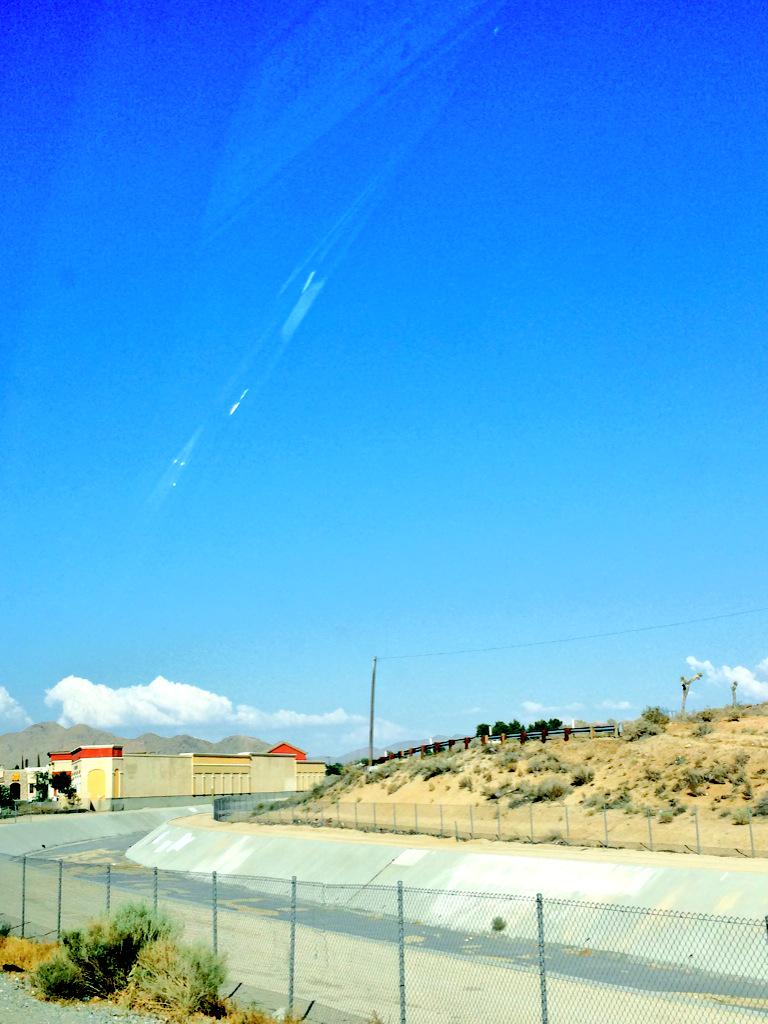


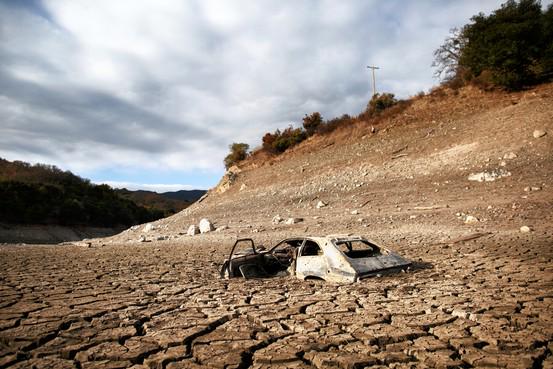
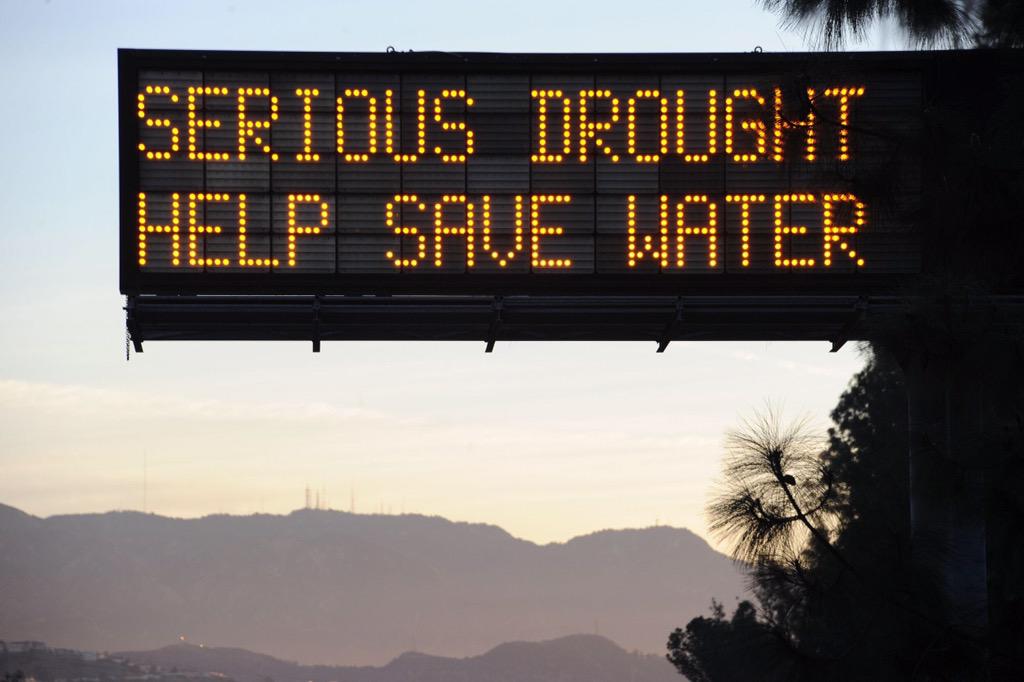
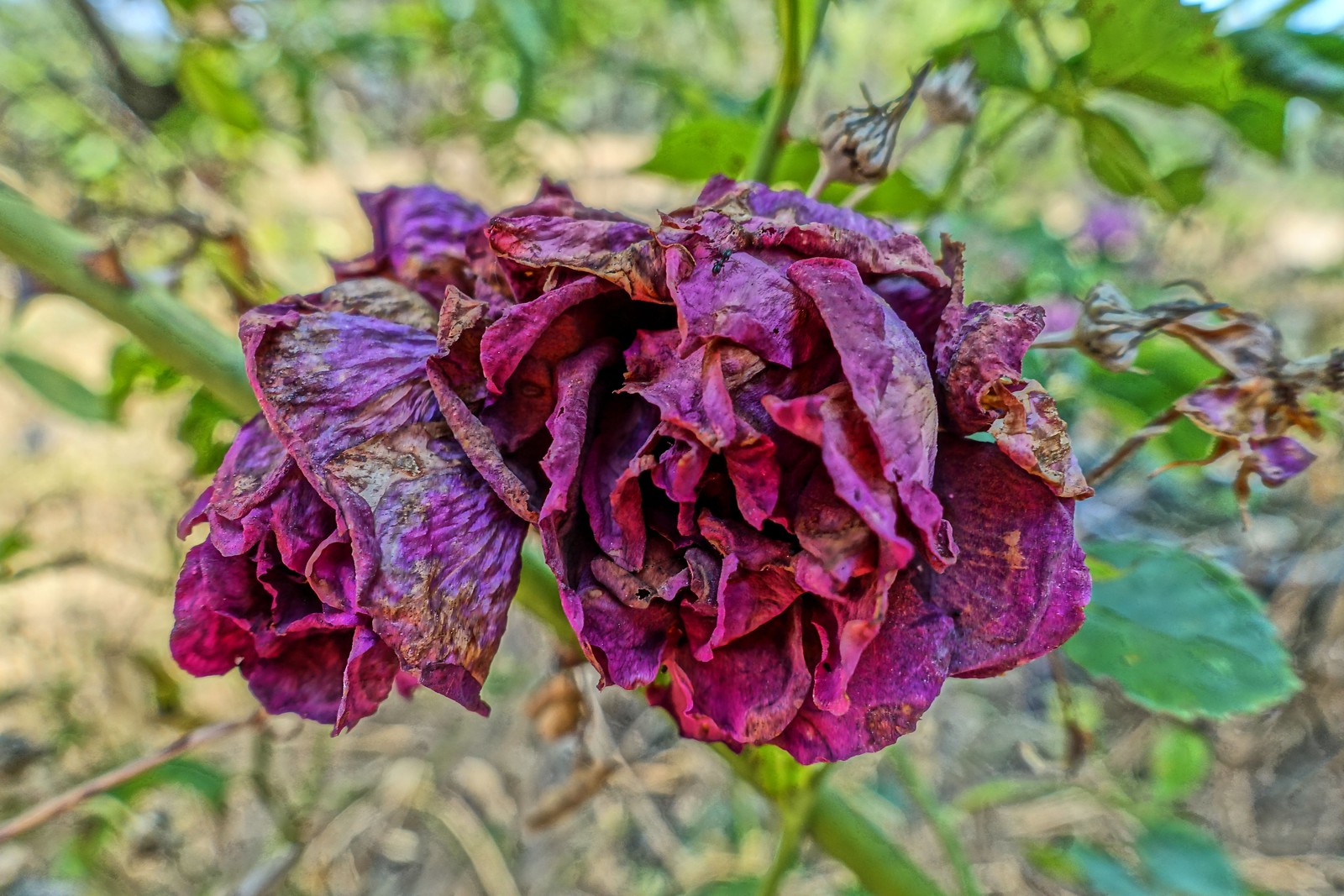
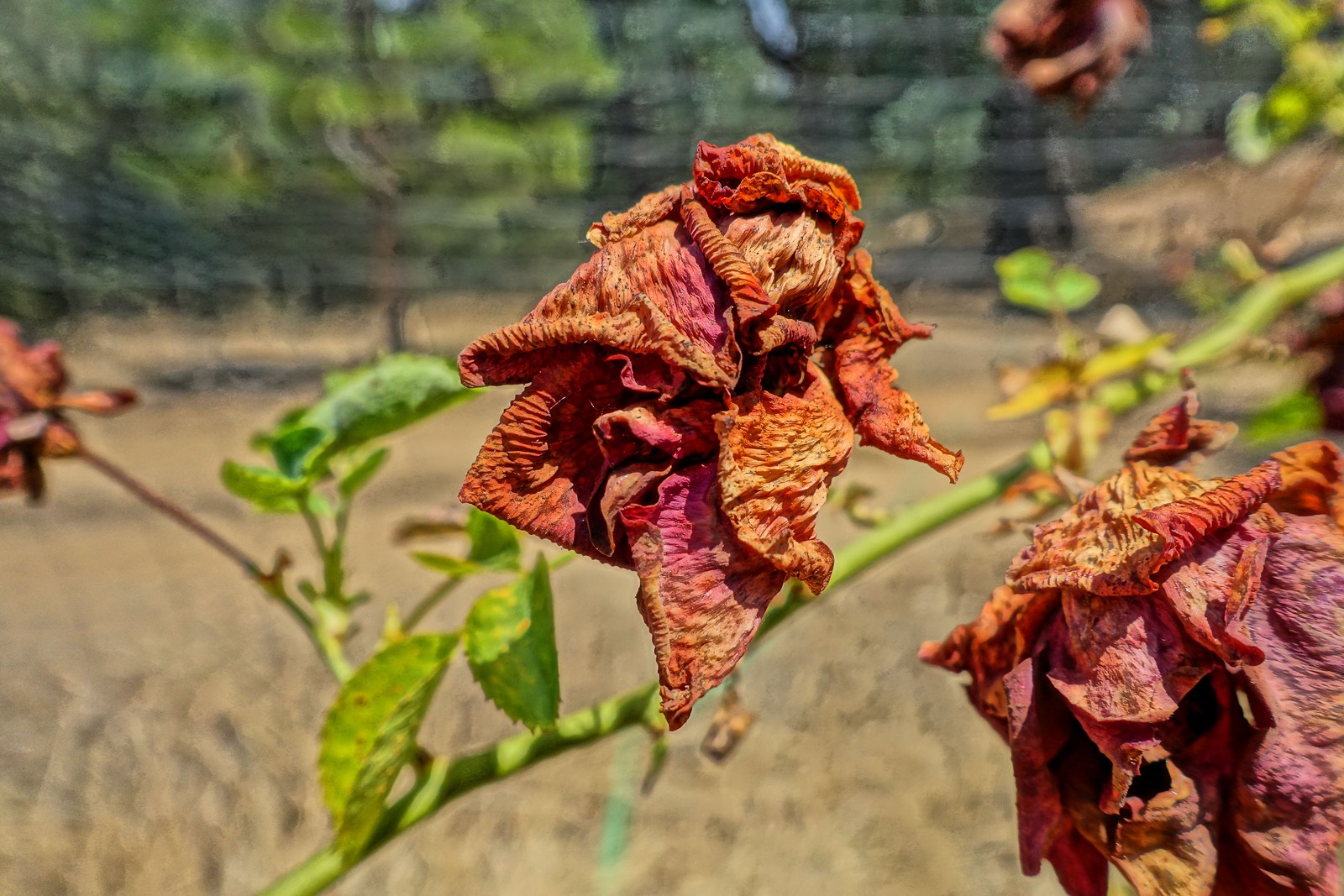
scorched earth: 85 years
ReplyDeletesoil erosion: 60 years
http://www.theguardian.com/commentisfree/2015/mar/25/treating-soil-like-dirt-fatal-mistake-human-life
Ain't looking good.
"...What appear to be great crises are slight and evanescent when held up against the steady trickling away of our subsistence.
ReplyDelete"The avoidance of this issue is perhaps the greatest social silence of all. Our insulation from the forces of nature has encouraged a belief in the dematerialisation of our lives, as if we no longer subsist on food and water, but on bits and bytes. This is a belief that can be entertained only by people who have never experienced serious hardship, and who are therefore unaware of the contingency of existence."
Monbiot has it right.
Yes, I think that's about right as well, Tom. It reminded me of some lines from Russell (can't remember where I read them):
ReplyDelete'Whatever we may think, we are creatures of Earth, and we draw our nourishment from it just as the plants and animals do. The rhythm of Earth life is slow; autumn and winter are essential to it as summer and spring, the rest is as essential as motion. To the child, even more to than the man, it is necessary to preserve some contact with the ebb and flow of terrestial life. The human body has been adapted throughout the ages to this rhythm, and religion has embodied something of it in the festival of Easter....
Many pleasures, of which we may take gambling as a good example, have in them no element of this contact with the Earth. Such pleasures, in the instant when they cease, leave a man feeling dusty and dissatisfied, hungry for he knows not what....
The special kind of boredom from which modern urban populations suffer is intimately bound up with their separation from the life of Earth. It makes life hot and dusty and thirsty, like a pilgrimage in the desert. A happy life must be a quiet life, for it is only in an atmosphere of quiet that true joy can live.'
Which brings us back to your thoughts on the desert since what are virtual reality, the world of gambling, 24/7 shopping, and "instantaneous" communication if not a desertification?
For me, Tom, the strangest paradox is this (first highlighted by Arendt): at a time when all transcendence was denied and we'd come to accept ourselves as "mere" earthly creatures, we wanted nothing but to escape from earth, to take flight.
All that is solid melts into air.
ReplyDeleteRecently, I heard a conversation at a local market where a British winemaker talked of how the shifts in climate made for profit without a trace of regret.
"... we wanted nothing but to escape from earth, to take flight."
ReplyDelete"... talked of how the shifts in climate made for profit without a trace of regret."
"... what are virtual reality, the world of gambling, 24/7 shopping, and 'instantaneous' communication if not a desertification?"
Many thanks, friends, for thinking with this one. An "unthinkable" subject that cries out for some thinking, even if it's merely the first stirrings of the curious thought that the legendary development of civilization as we know it might turn out to have an unhappy ending after all.
Thought, I mean, or perhaps the more accurate term would be regret, sustained by at least a few of those here on Earth, now... sustained not "later" (what later??) but now, while still toiling (or not toiling), or quaking (or not quaking), upon it, perhaps just this wee bit longer, before whatever imaginal phantasy take-off scenario arrives to "solve the problem".
In the Command Bunker, the programmers come and go
Talking of Pluto...
I spent the summer of 1951 in California. What is now Silicon Valley was then the Santa Clara Valley. From the highway -- it was not yet a freeway then -- one saw nothing but row upon row of green and growing things, producing the abundance advertised in the crate labels (which date from the 1920s into the 1940s).
Now the same stretch of planet is entirely covered over by concrete.
The intense overuse of motor vehicles which made civilization possible in California also gradually made life unliveable here. A form of human conduct leading the way into... an inexhaustible gold mine, it was once supposed. Or, in actual present fact, a brownish-yellow tinderbox, waiting to explode.
What water remains is largely siphoned off by big ag and big frack interests, or bottled up and sold out-of-state.
For this water that once fell from the sky is not considered a natural resource of the living, but a privatised property of the living dead.
If this outcome weren't tragic, there might be the occasional bit of humour in it.
A week or so back, it was noted that the mondo TV star Tom Selleck has been hiring a gang of peons to tap into public water supplies in order to secure said water for his own private uses -- all doubtless "essential" (pool, lawn, spa, putting green & c.).
There is of course "rationing". But this strictly on an "honour system". (Comedy Central, are you listening?)
There are no actual penalties for exceeding the permissible use-limits. A small raise in rates. Which the vast majority of the violators won't even notice.
We're down to weekly ninety-second showers and saving dishwater to offer the few thirsty, withered plants that have survived.
Having been reduced to the pathetic condition of a helpless cripple after being run over by an uninsured driver on the madhouse freeway feeder in front of our derelict abode (we are of that vanishing species, nondrivers), I now venture timorously into the outdoors only in the dead of night, just before dawn, when the traffic ebbs... and, for this act of superhuman daring, am rewarded with a firsthand view of how our neighbours are dealing with the ongoing crisis.
They have their automatic sprinkler systems programmed to deliver, in the hours just before dawn (aka "the dead of night"), profligate and clandestine refreshment to their precious lawns, which by such means remain sparkling green all the livelong day, as if by miracle.
All in secret. The most profitable way.
By the by, if you were tempted to think that fires engulfing freeways and setting cars, trucks and boats alight must be a pretty common thing in this hellish paradise, think again. It's not. Also, the firefighters' efforts being hindered by the presence on the scene of a swarm of drones: again, one might think this is merely routine business, here in the land of the Free. But no, not yet routine exactly, though surely a sign of things to come
ReplyDeleteThis wire service story brings out a few telling details.
__
'We prayed to God': California wildfire sweeps freeway, destroying vehicles
Motorists get out and run for safety as flames are swept by desert winds
Fires overrun part of a California highway.
Associated Press in Hesperia
Saturday 18 July 2015
A few minutes before they had been on the vacation of a lifetime, but now Russell Allevato and his family were running for their lives from a raging brushfire that had trapped them and hundreds of other terrified people on a traffic-jammed highway connecting Los Angeles to Las Vegas.
“People were screaming. It was just crazy,” said Allevato, who watched helplessly on Friday afternoon as flames engulfed his rental car and destroyed everything inside it while he, his nephew and two teenage daughters fled to safety.
“We were surrounded by the flames. They were to the left, then in front of us and they came around to the right. We were in a big horseshoe in the middle,” he said as he spoke by phone from the safety of a California Highway Patrol vehicle.
The fire in the winding, mountainous Cajon Pass 55 miles northeast of Los Angeles began at about 2.30pm in drought-ravaged dry grass below the elevated lanes of Interstate 15. Pushed by 40mph winds, it raced up a hill and onto the traffic-clogged freeway, trapping literally hundreds of people amid a cauldron of smoke, flames and ash.
On Saturday, higher humidity and lower temperatures helped pacify the fire, and most of Interstate 15 reopened. US Forest Service spokeswoman Carol Underhill said crews would focus on protecting some 700 homes in the area. About 2,800 people had been evacuated, while another fire 20 miles away forced hundreds of campers to flee.
Of the Friday fire, Greg Kieran, a San Bernardino County Fire Hazmat specialist, said: “We had some highway patrolmen who said they had never seen fire travel that fast. It just overran these people before they even knew what hit them.”
Drivers and their passengers had no choice but to abandon their cars as the flames hopscotched down the freeway, destroying 20 vehicles, several of which exploded in fireballs.
Four structures in the nearby rural community of Baldy Mesa also burned as the flames raced across 3,500 acres. The blaze was only 5% contained by early Saturday.
Among those trapped by the flames was Lance Andrade, a 29-year-old railroad conductor from nearby Apple Valley, who found himself caught in the traffic jam just as the fire jumped the freeway. Soon people were running toward him and he joined them, only to find there was nowhere to run. Flames had surrounded him and the others.
A panicked-looking firefighter ordered everyone to take cover, and Andrade said he huddled with four other men and two elderly women in the back of a tractor-trailer rig until the flames passed. One of the women, who had become separated from her family, began to cry. Everybody was terrified.
“You could hear the explosions from people’s vehicle tires popping from the heat,” Andrade said. “You could hear crackling. Smoke was coming in every direction. You could feel the heat. We just waited it out and prayed to God.”
[continues:]
ReplyDeleteTelevision helicopters carried the scene live as flames leapt from vehicle to vehicle while water-dropping helicopters and then firefighters on the freeway battled to get control.
Firefighters’ initial effort was hampered by five drones that were being flown in the area when fire broke out, said Lee Beyer, a US Forest Service spokesman. He said several firefighting aircraft were delayed or diverted until the drones moved out of the area.
Meanwhile, a car-carrying tractor-trailer rig and its cargo of eight automobiles went up in flames. So did a boat being transported by another vehicle.
Allevato and his family fled their rental car so quickly they left all the clothes and other belongings they had brought with them from Southgate, Michigan. The vehicle was reduced to a charred hunk of steel.
Some drivers did manage to get off the highway, turning onto rural side roads that quickly became clogged with traffic.
Nelly Venzor said she and several members of her family, including her 95-year-old mother, abandoned their car and received a ride to their home in nearby Hesperia from a stranger in a pickup truck.
“When the fire just jumped to the other side of the freeway I thought, ‘It’s really hot and my mom is in the car. And if we have to run. It has to be done now. Quick, before we get stuck here and roast,” Venzor said.
“People could not move their cars. People were running. I thought, ‘OK, this is it.’ I really did,” she said.
California is in the midst of severe drought, and wildfires are common. Some break out near freeways, but it’s very unusual to have vehicles caught in the flames.
It being a Friday afternoon, however, Interstate 15 was typically jammed with vehicles traveling between Los Angeles and Las Vegas. Adding to the congestion was construction work going on in the area, said San Bernardino County Fire Captain Josh Wilkins.
Allevato and his family had left Las Vegas earlier in the day for Los Angeles, where they had hoped they might meet the Kardashian sisters at the family’s West Hollywood clothing boutique.
Allevato’s 15-year-old daughter, Leah, was devastated.
“We waited two years for this vacation, and I saved all my money,” she said. “I was thinking about it every day, and I finally got here and I have no clothes … I waited so long, and it’s ruined.”
The pathos. Try to imagine it. Not getting to "meet the Kardashian sisters at the family’s West Hollywood clothing boutique".
ReplyDeleteAnother American Dream goes up in smoke.